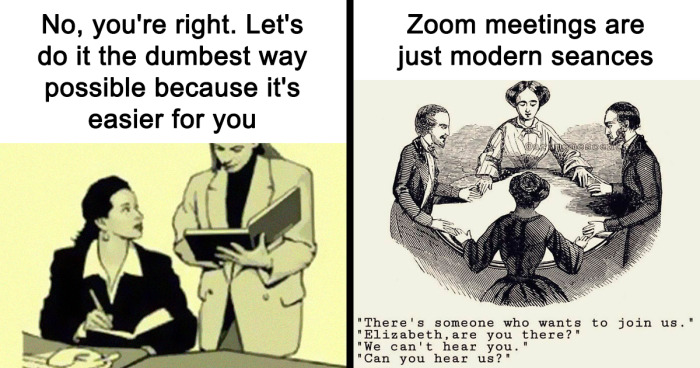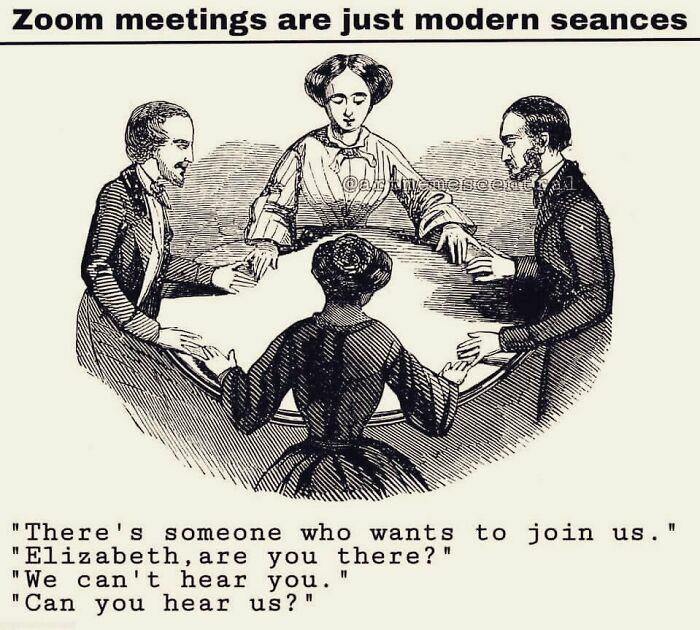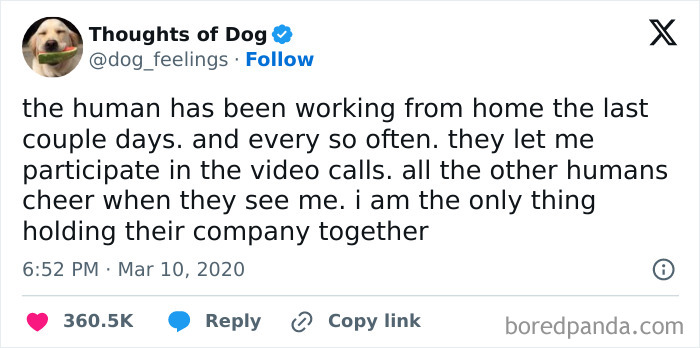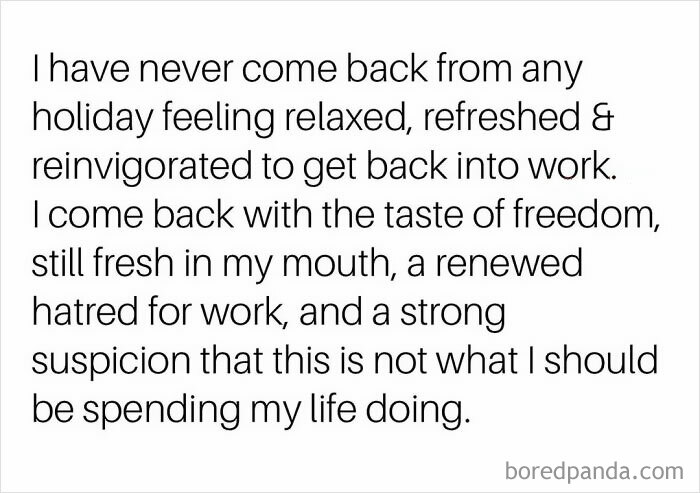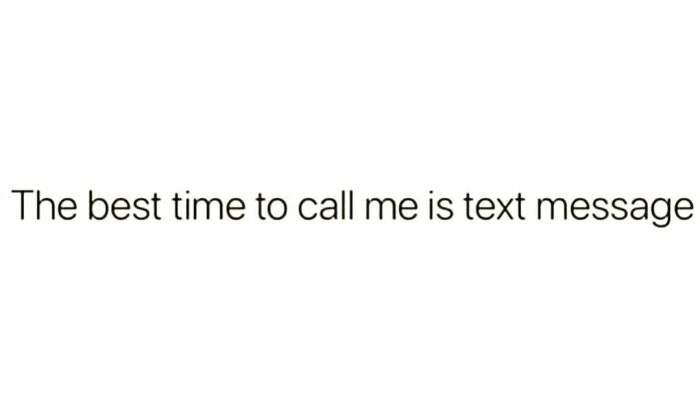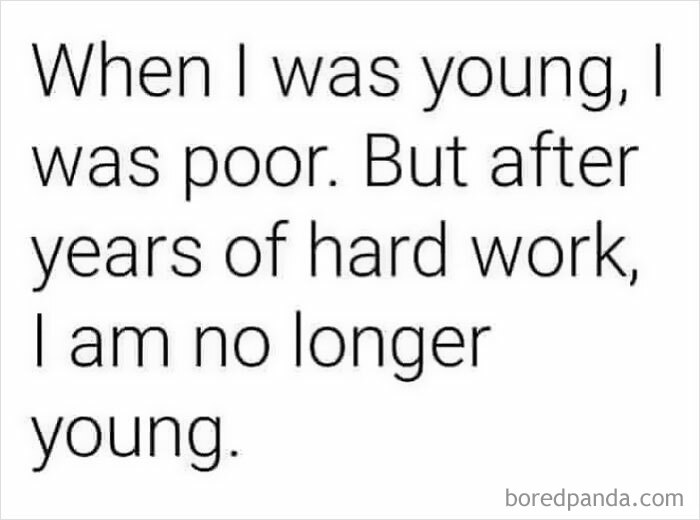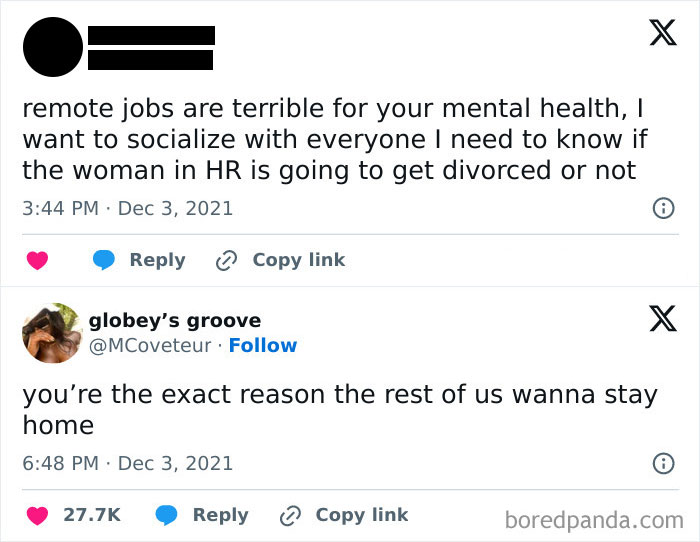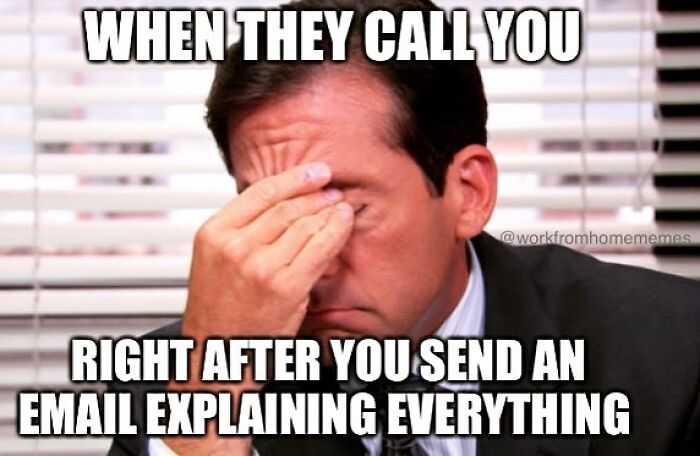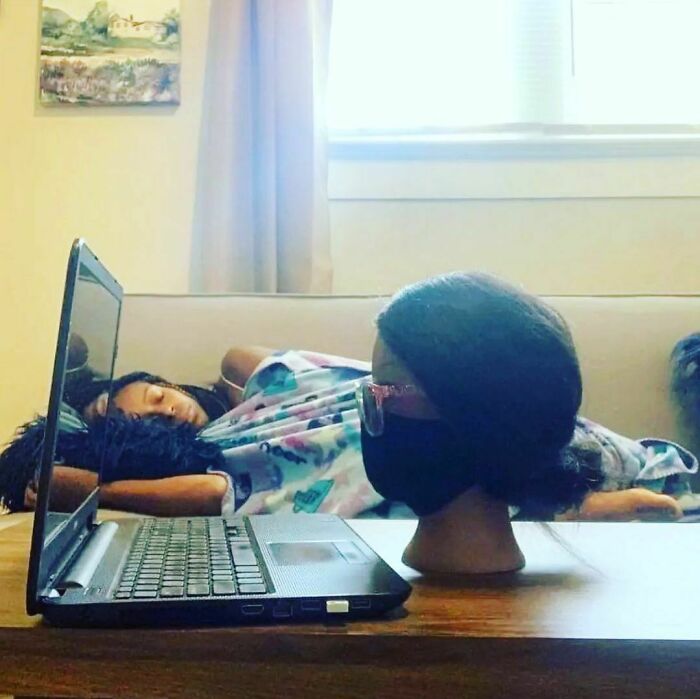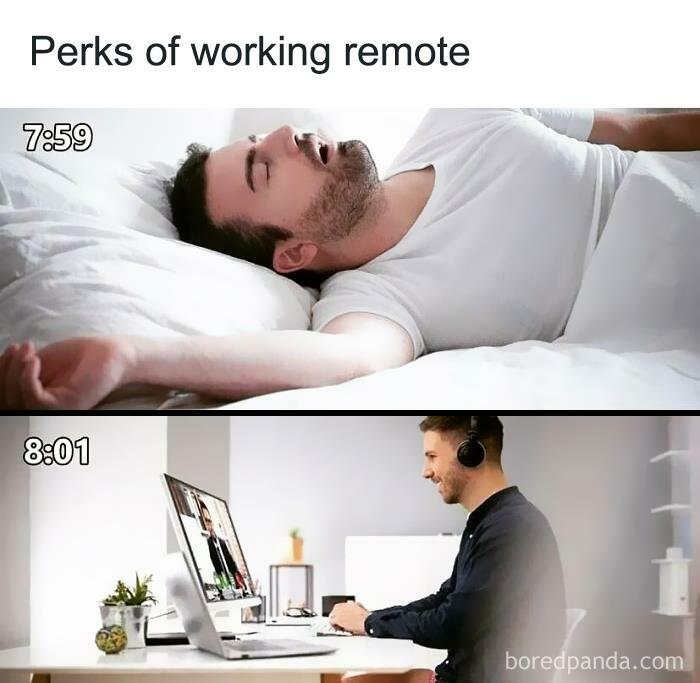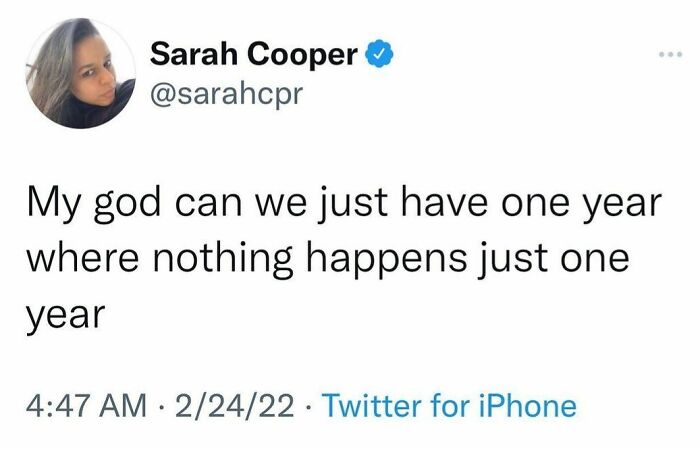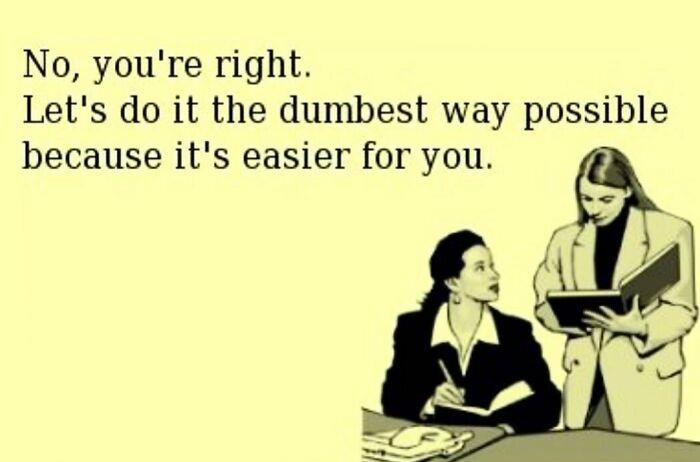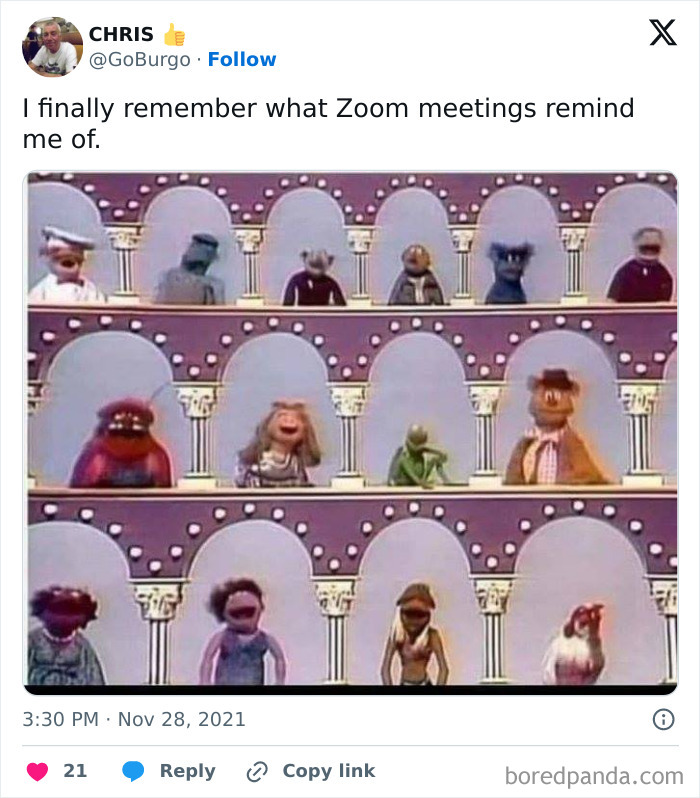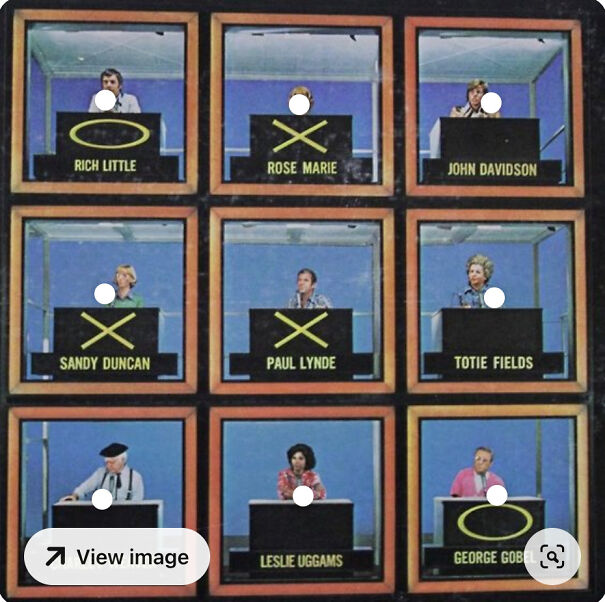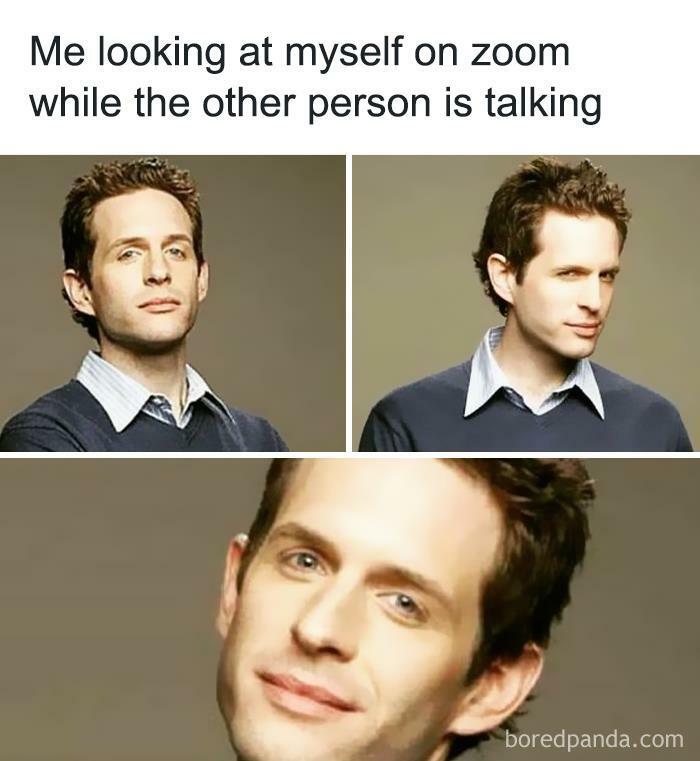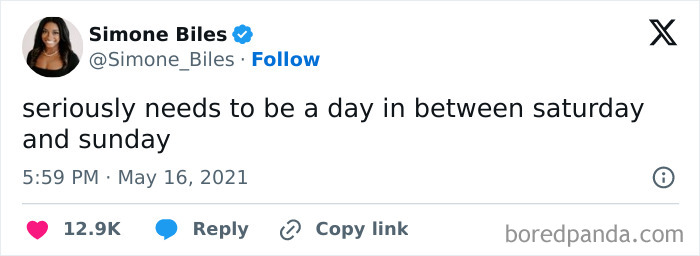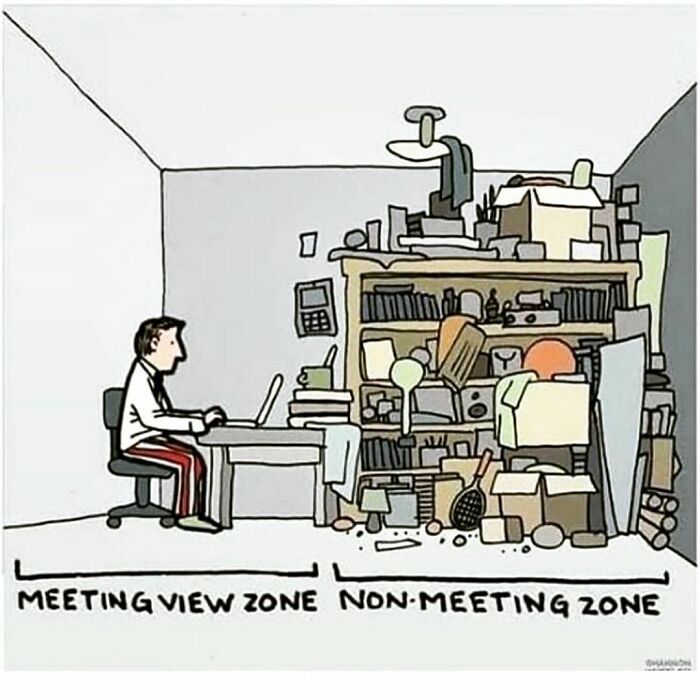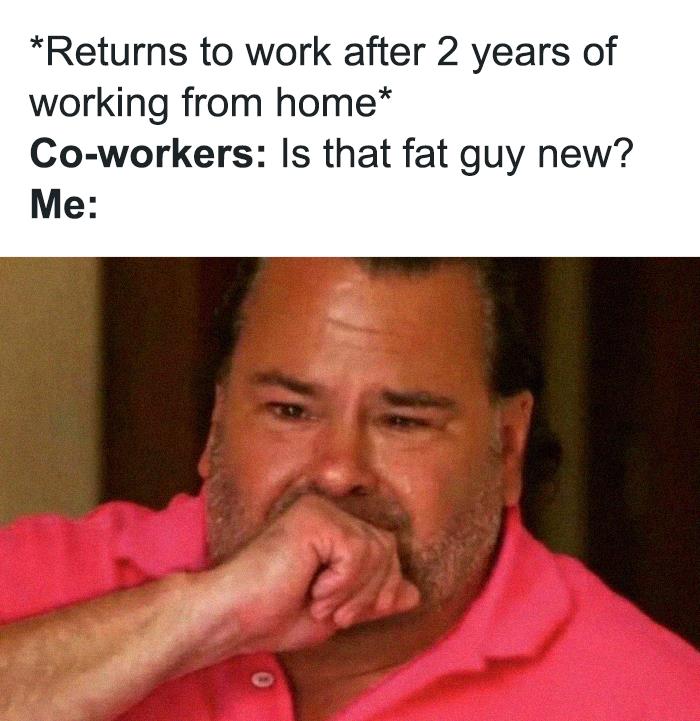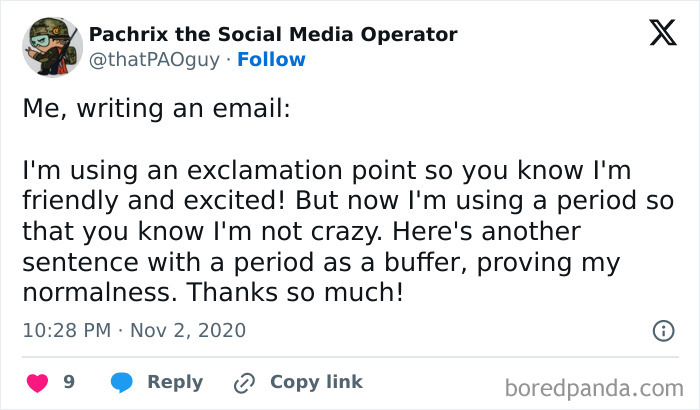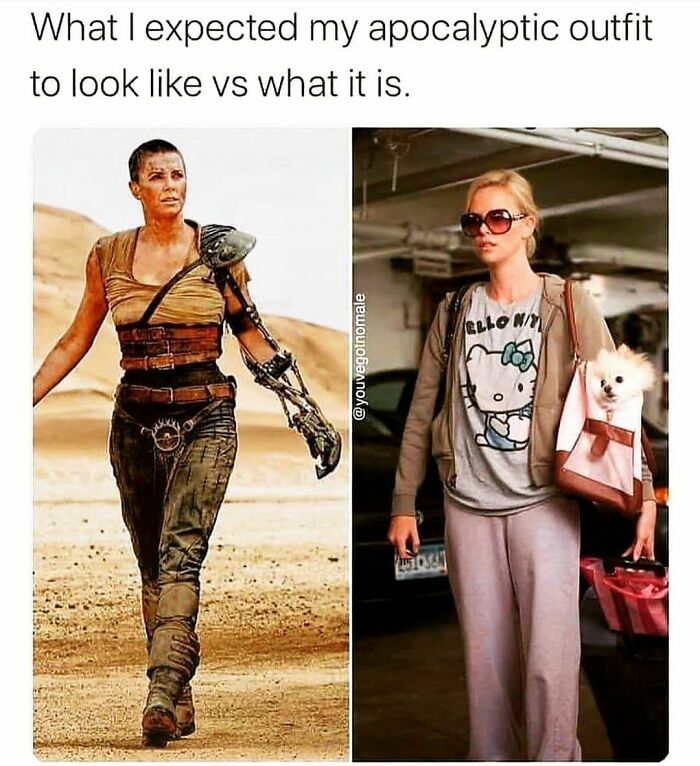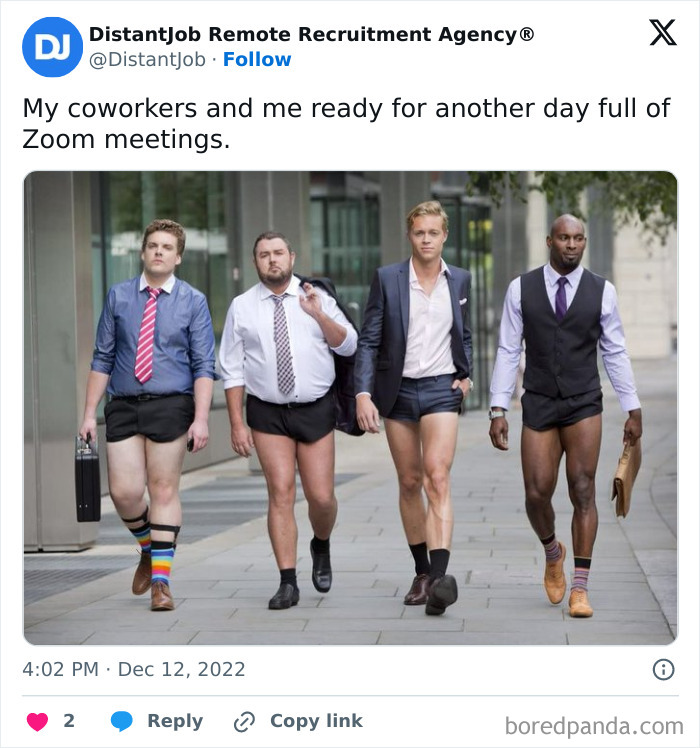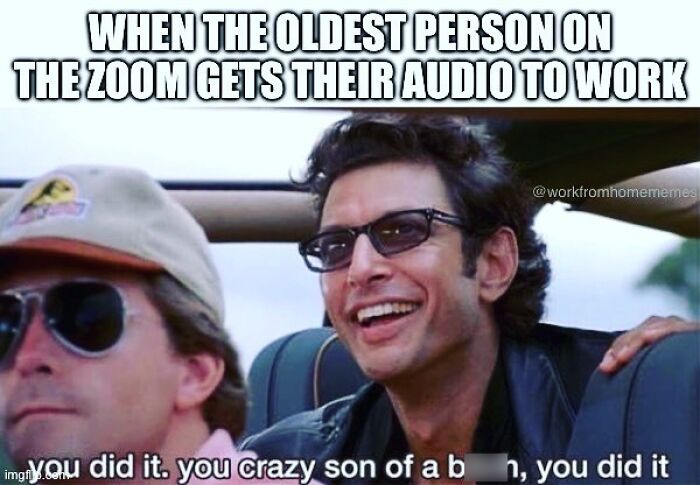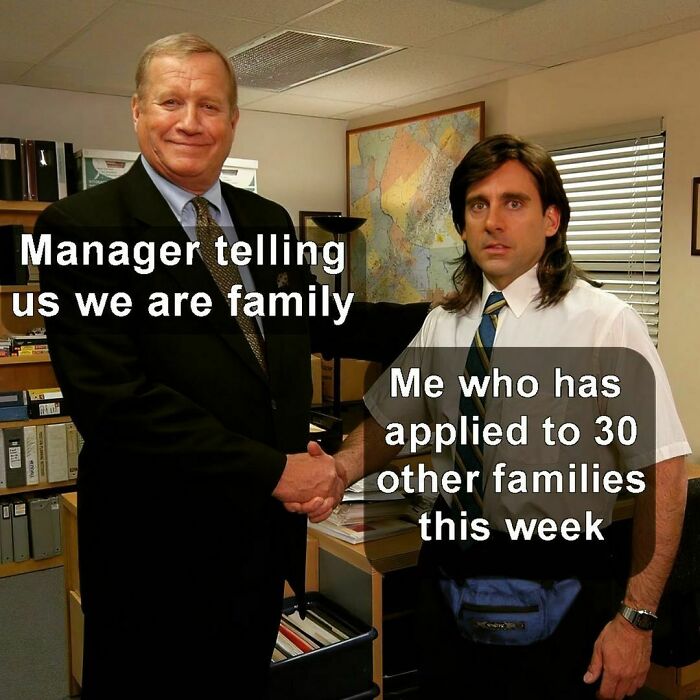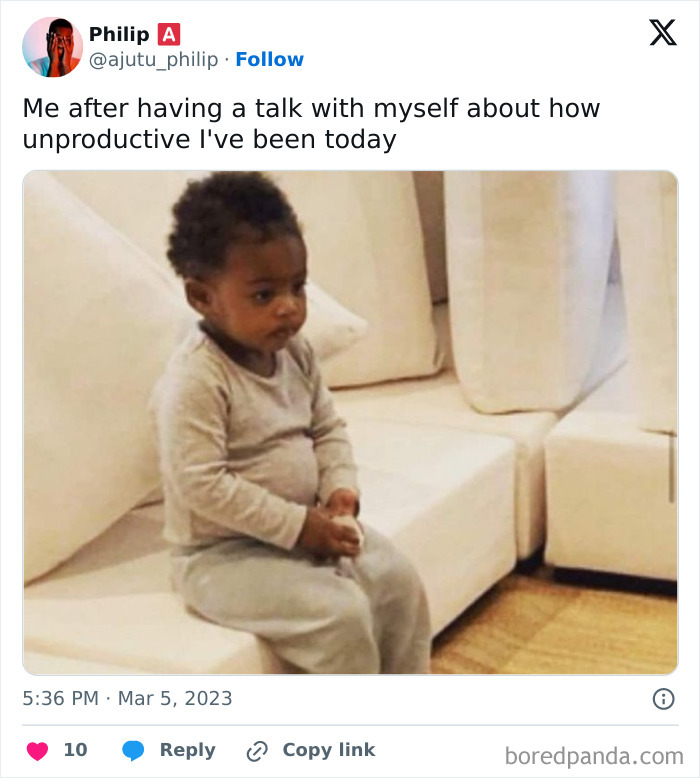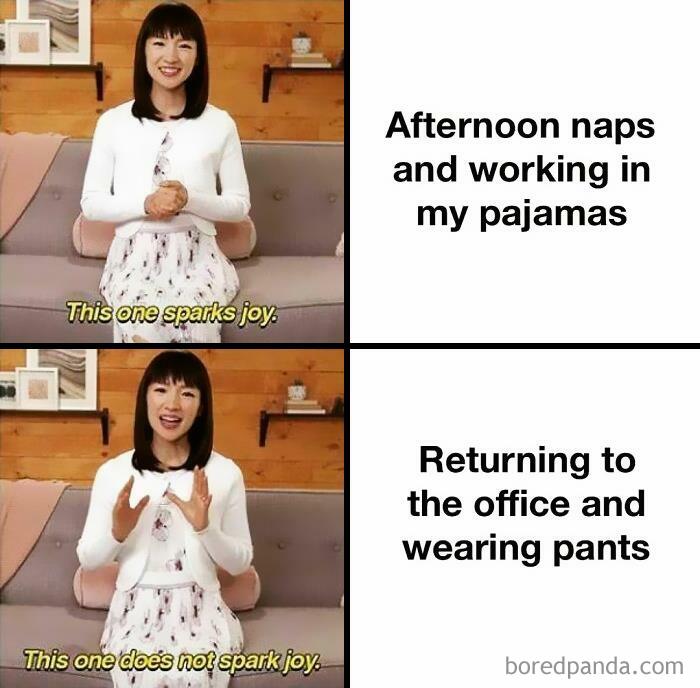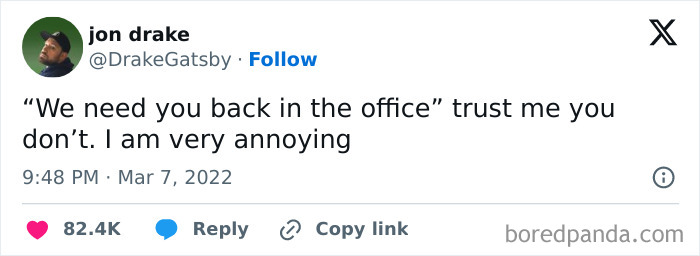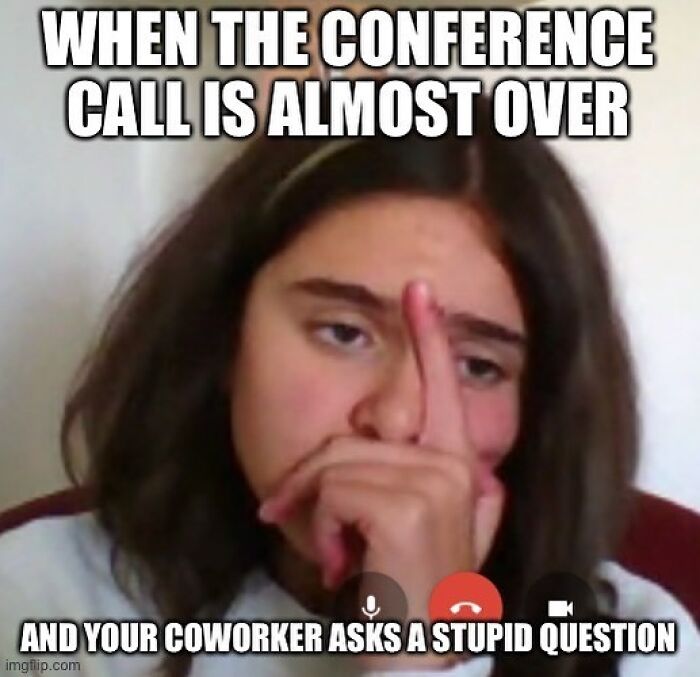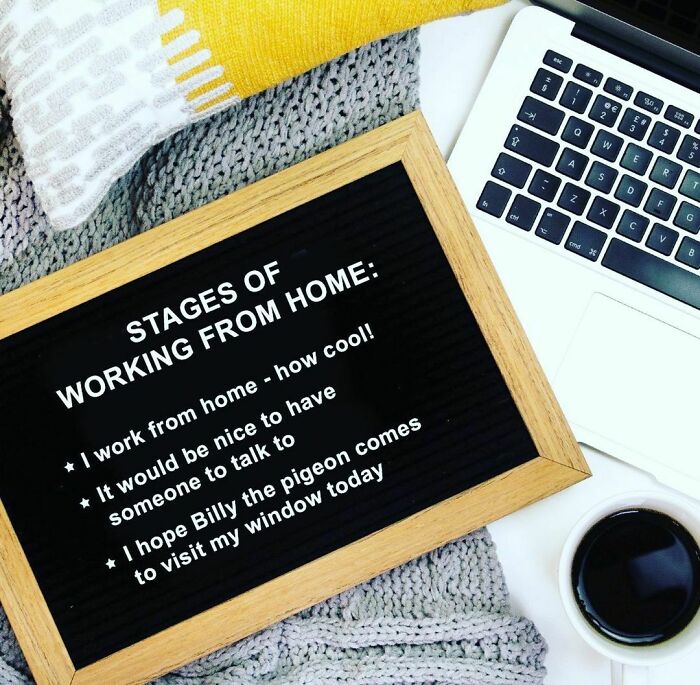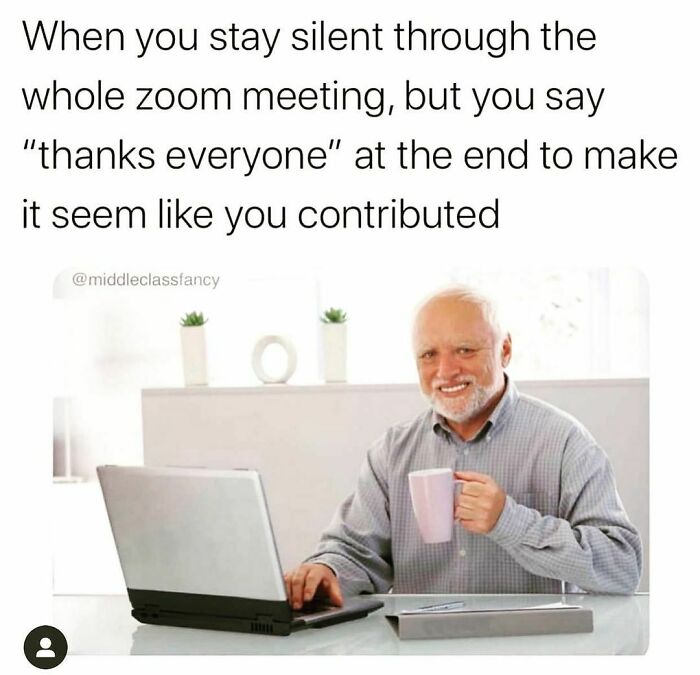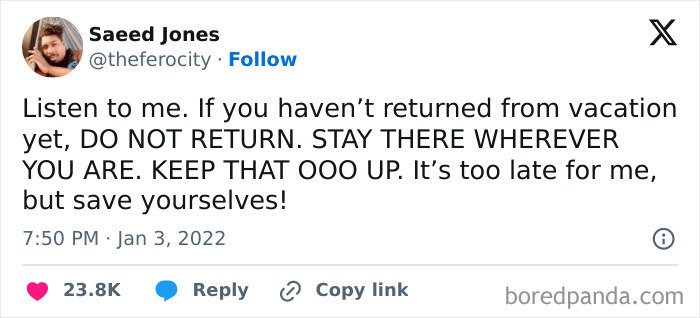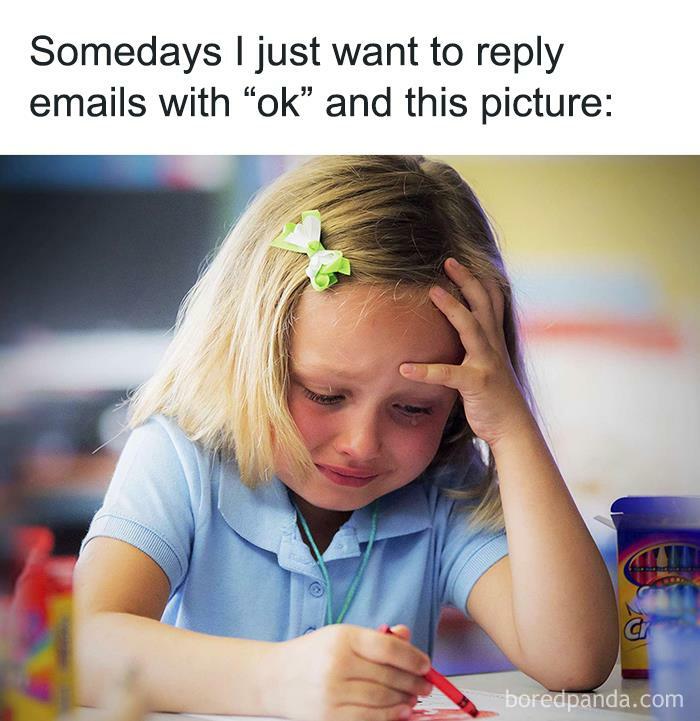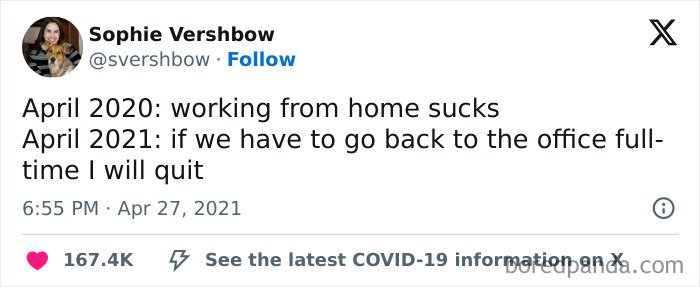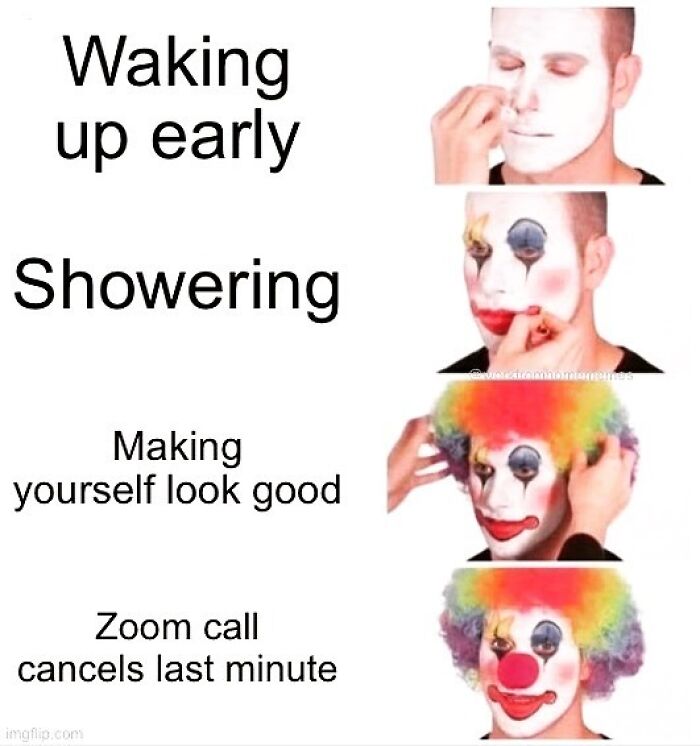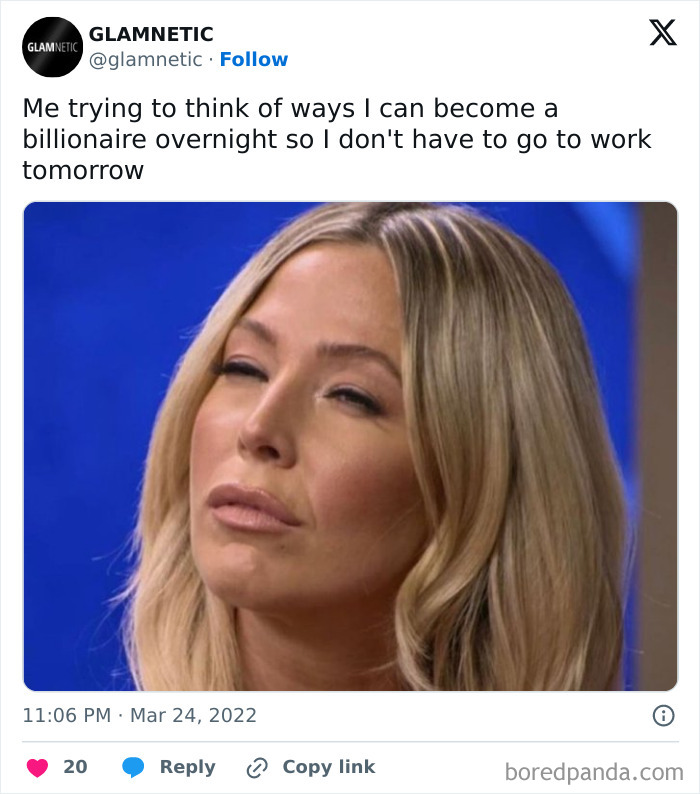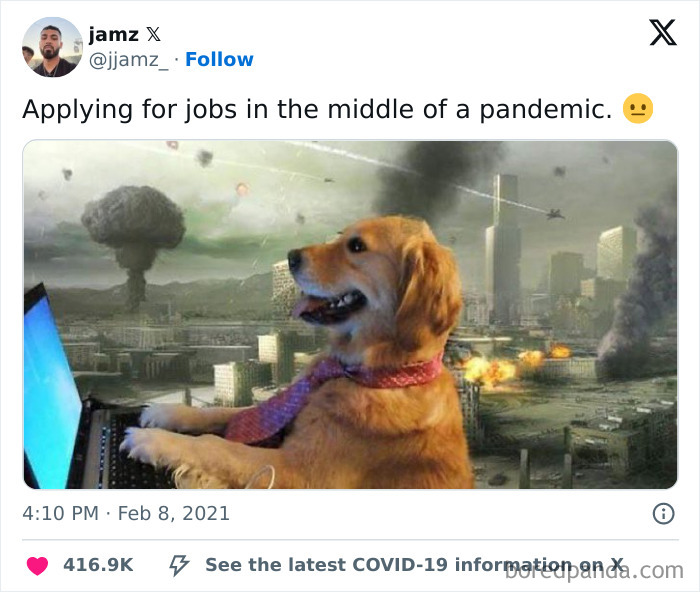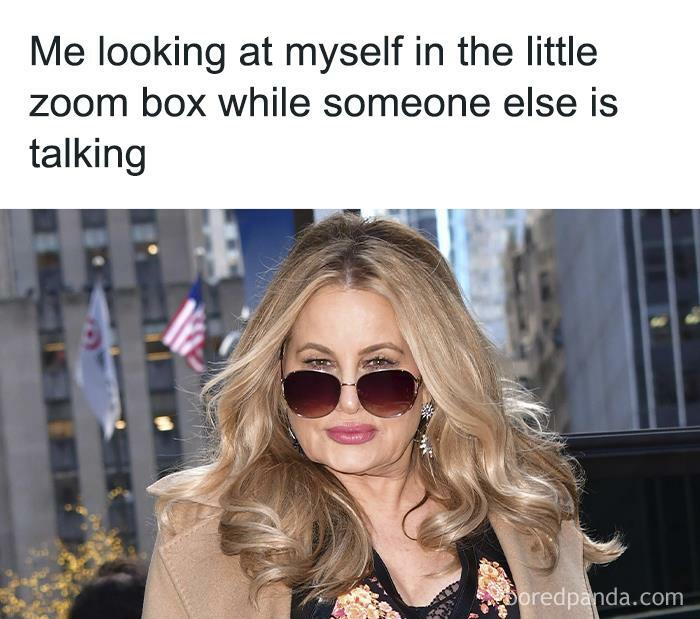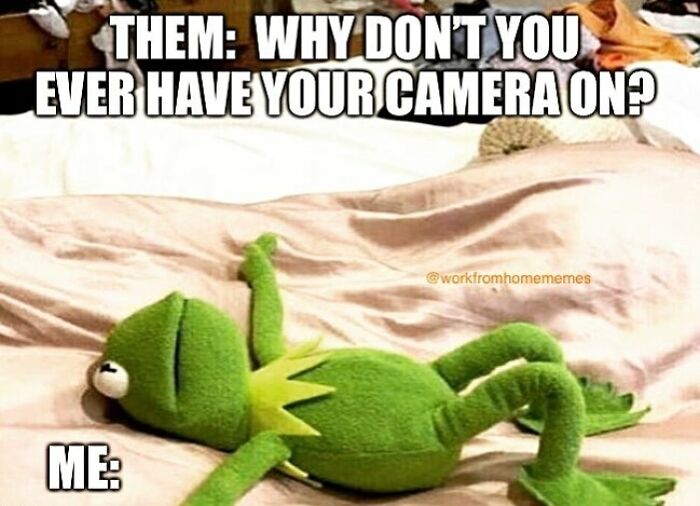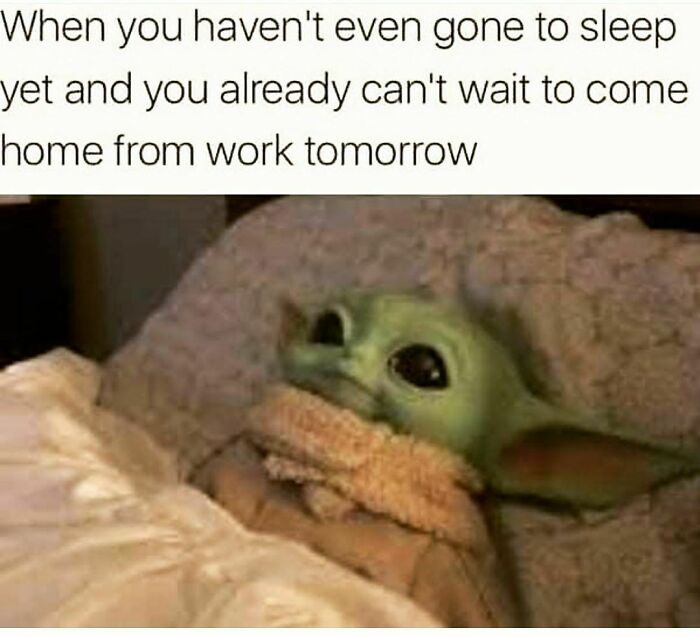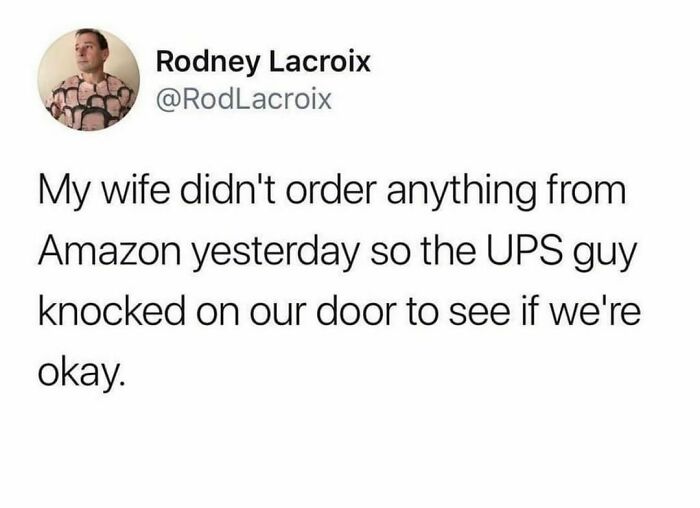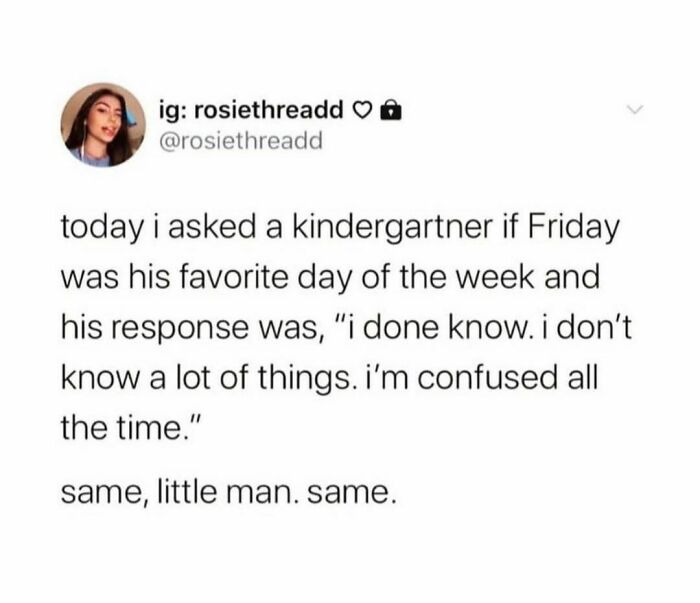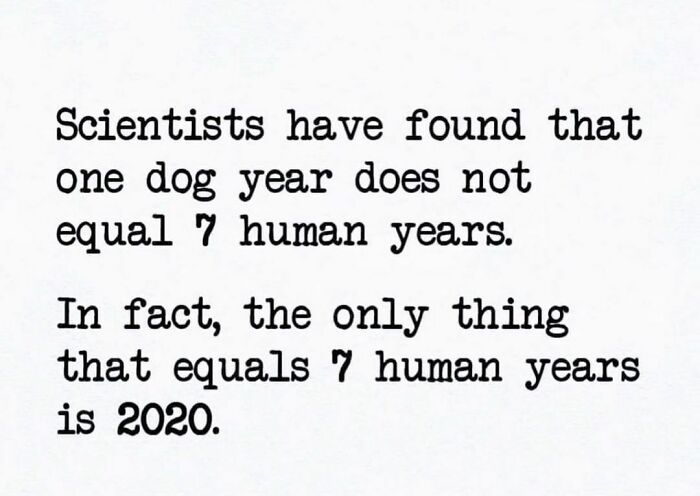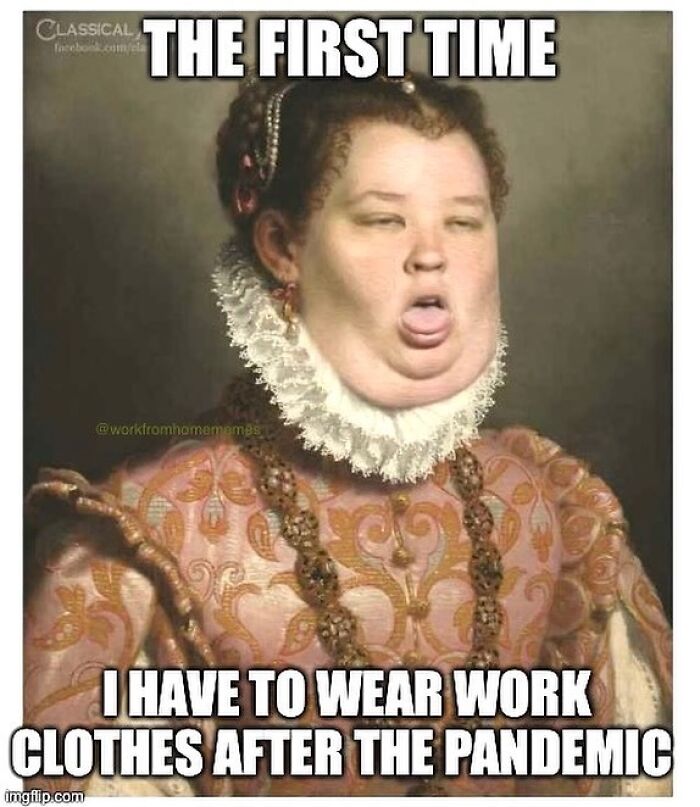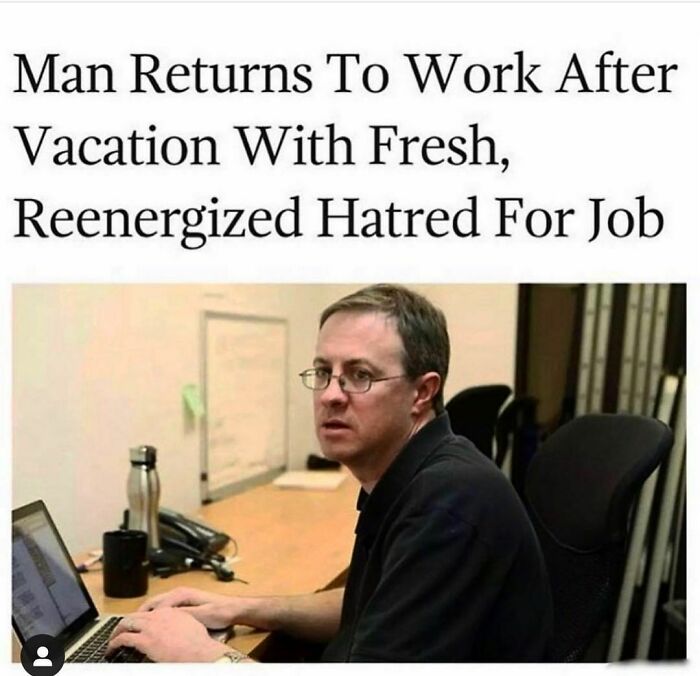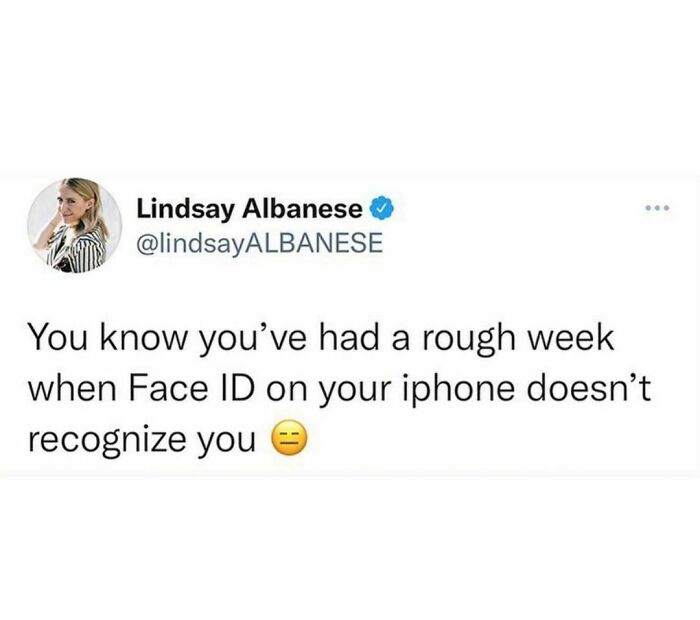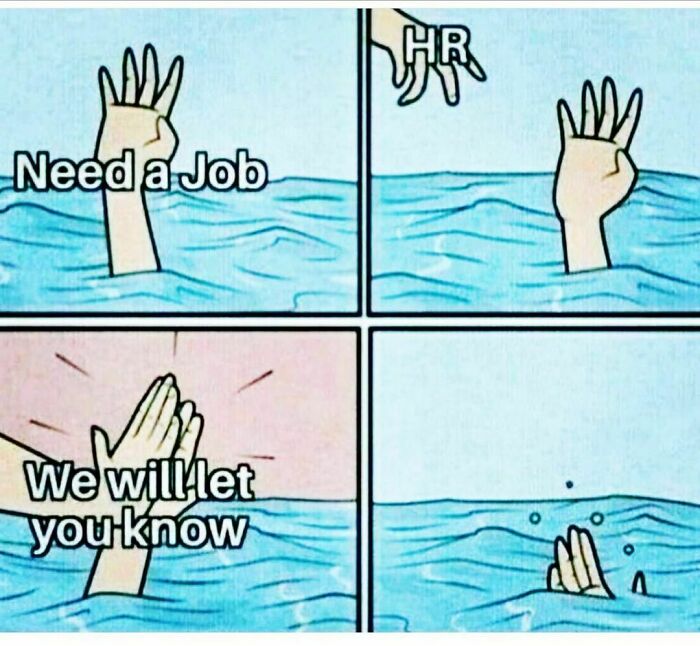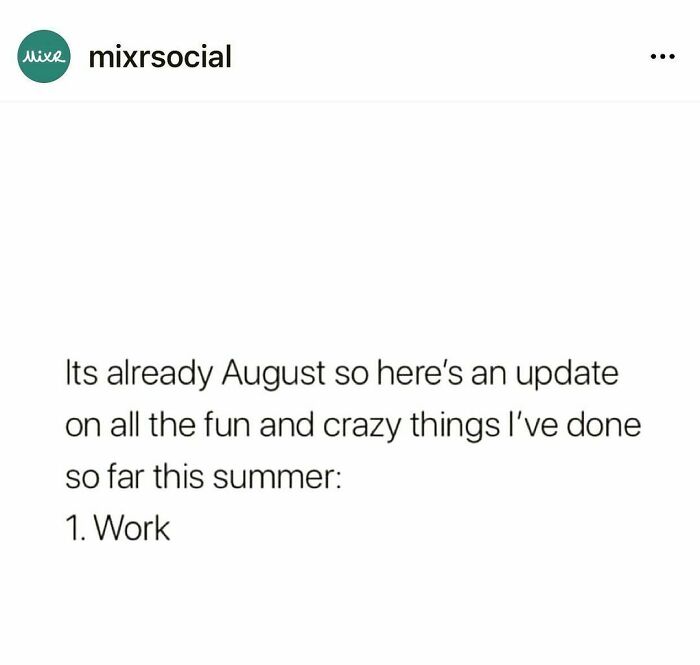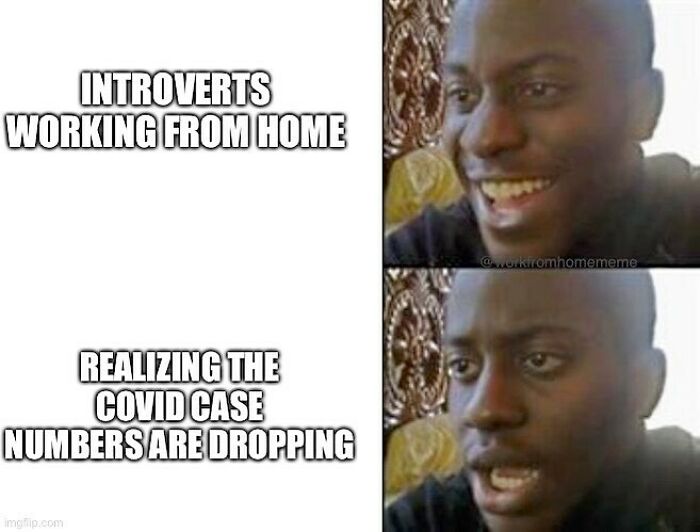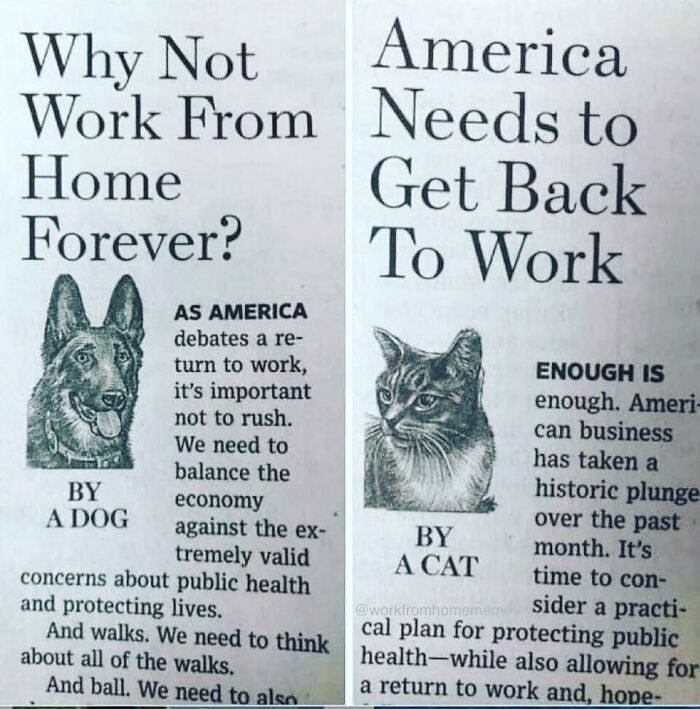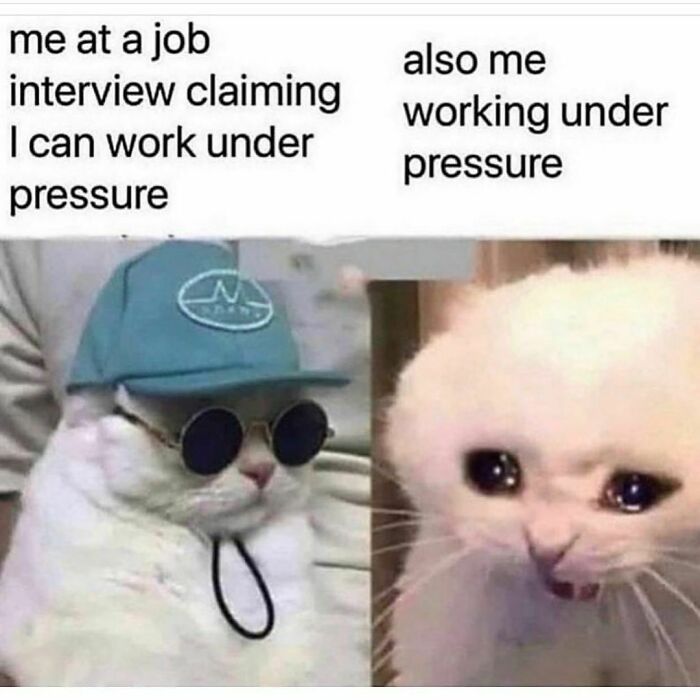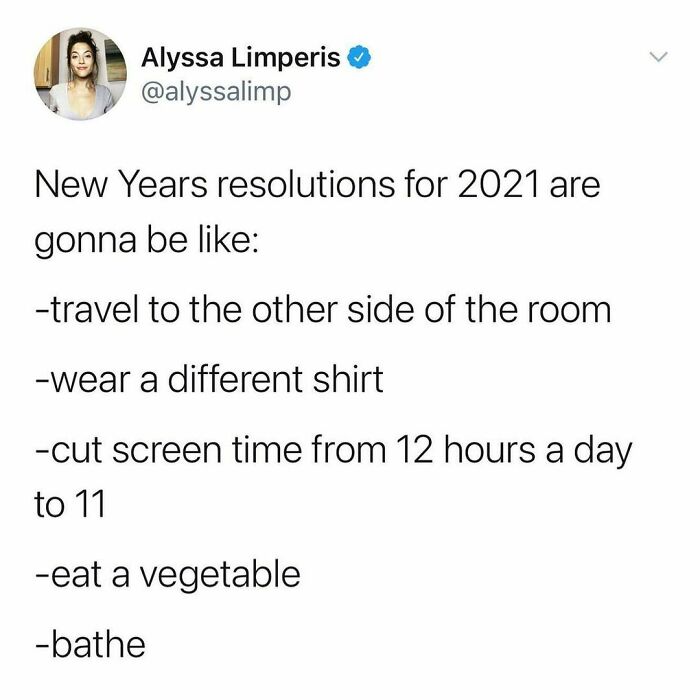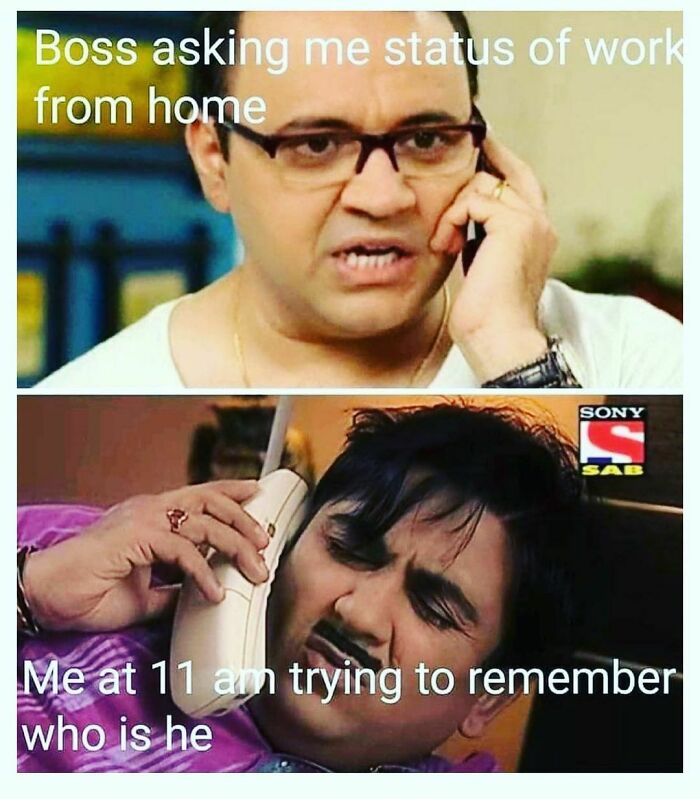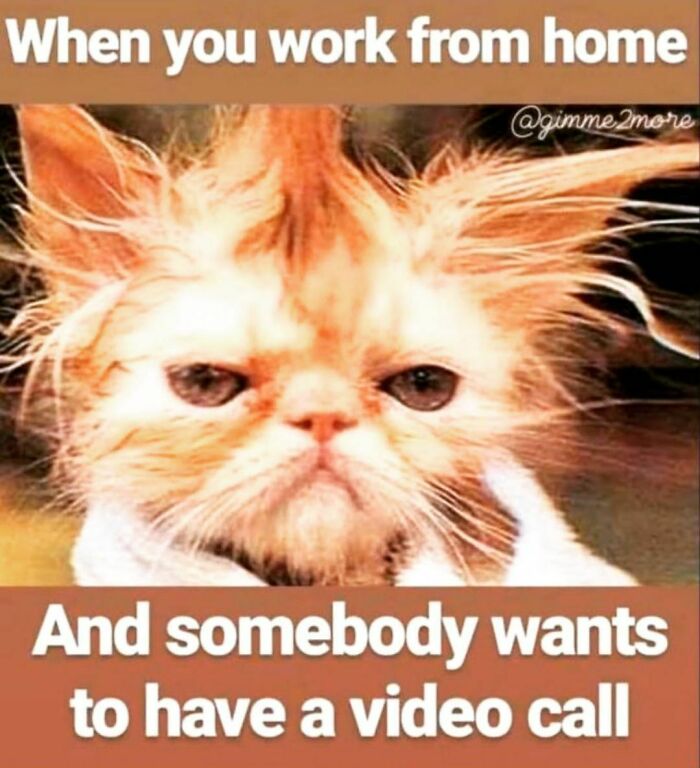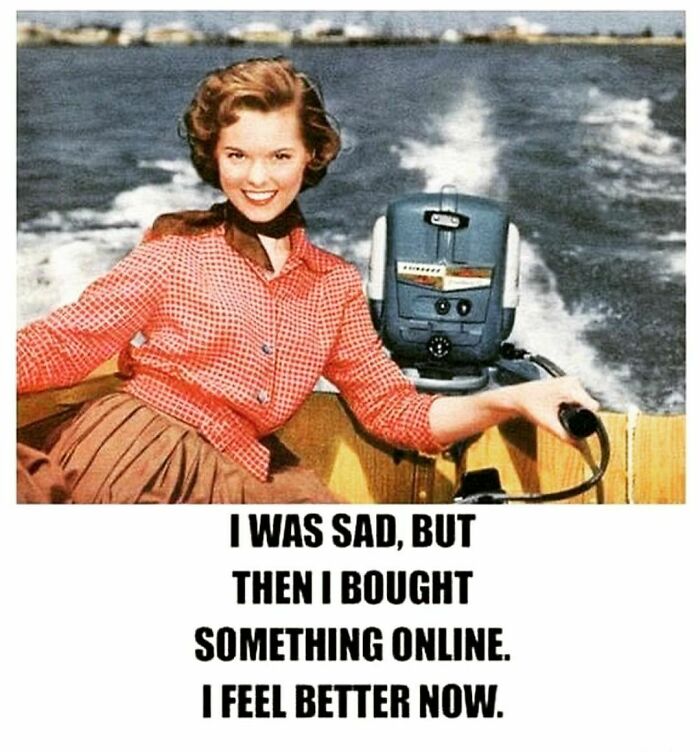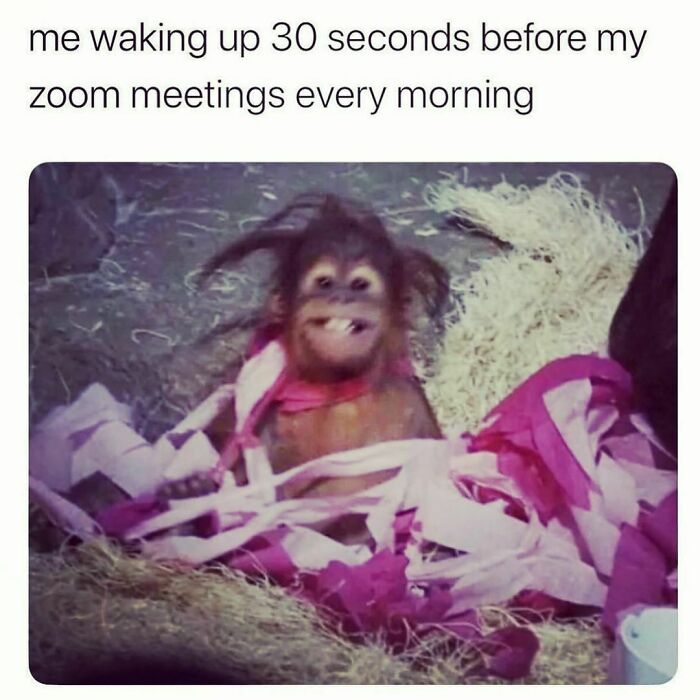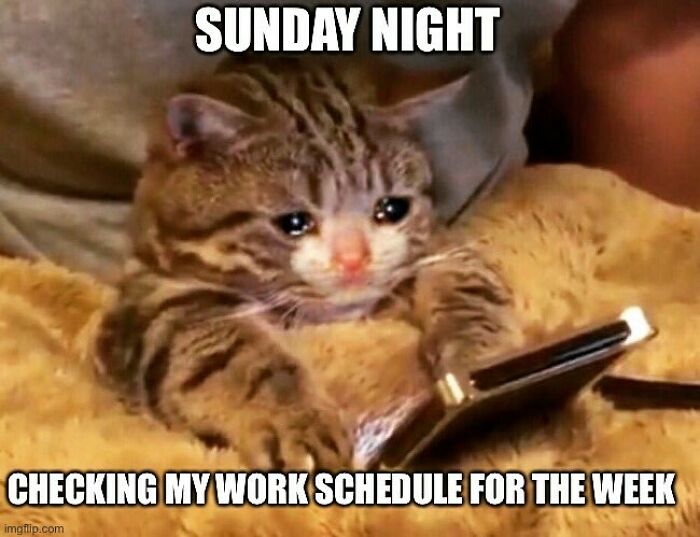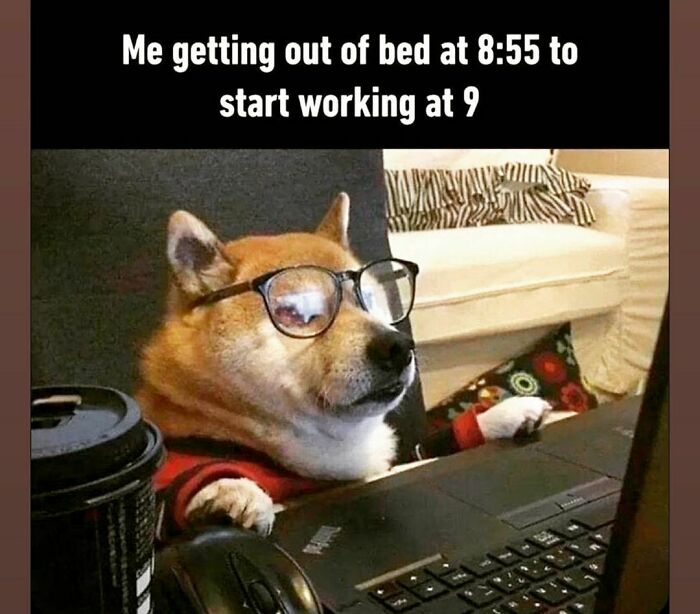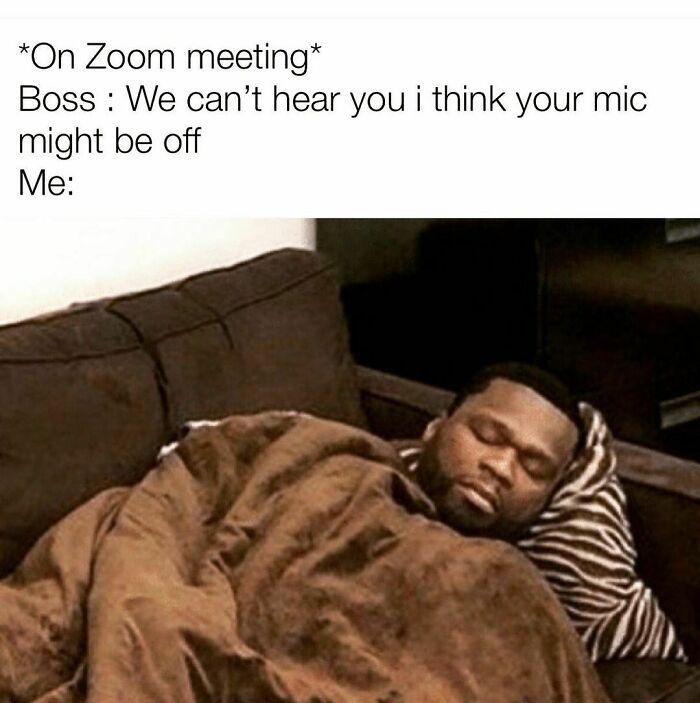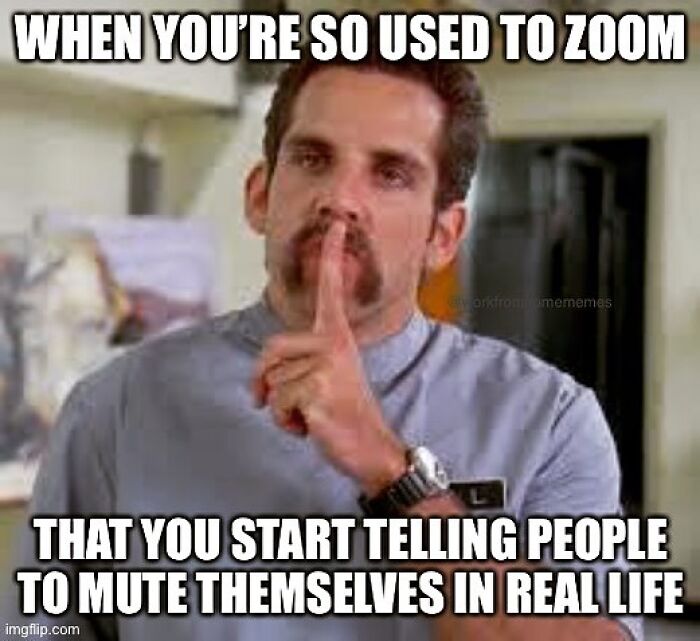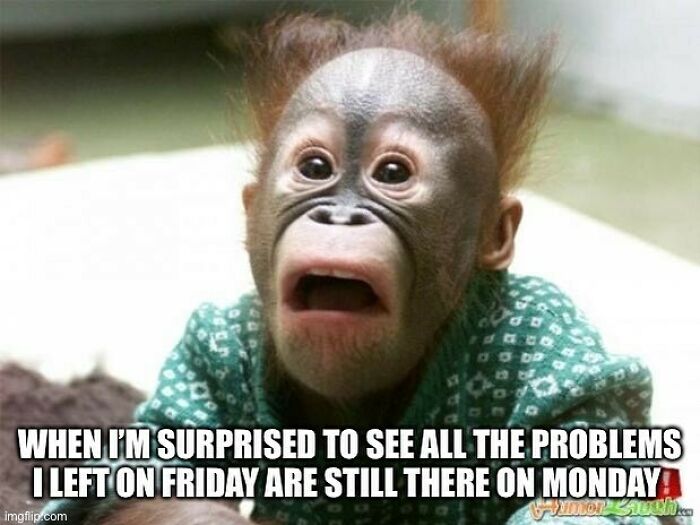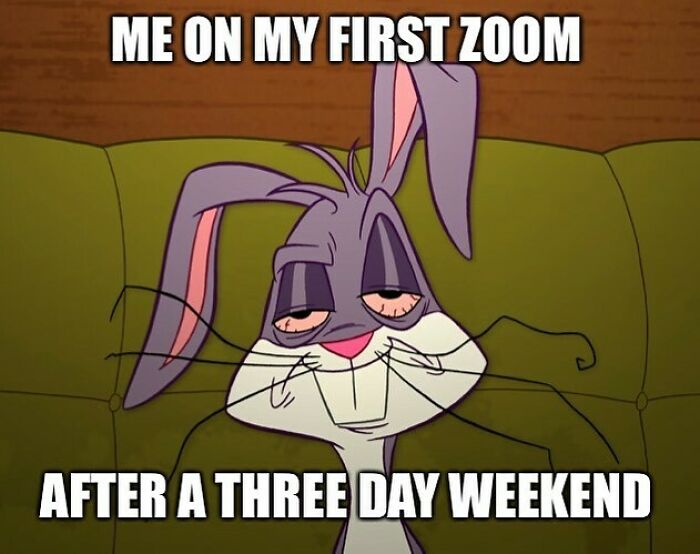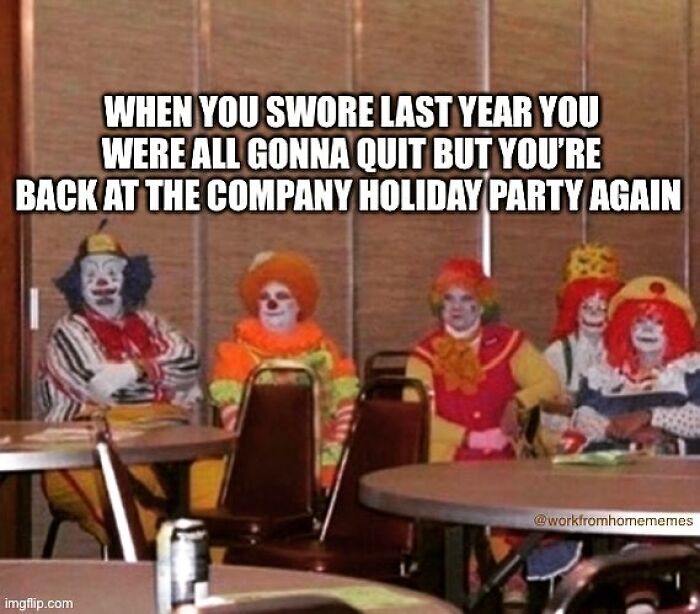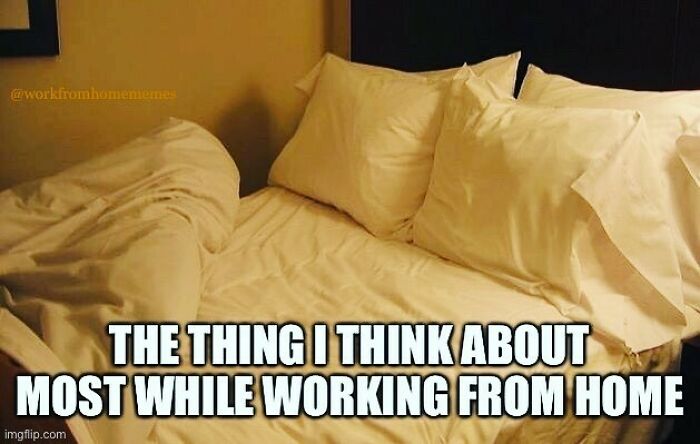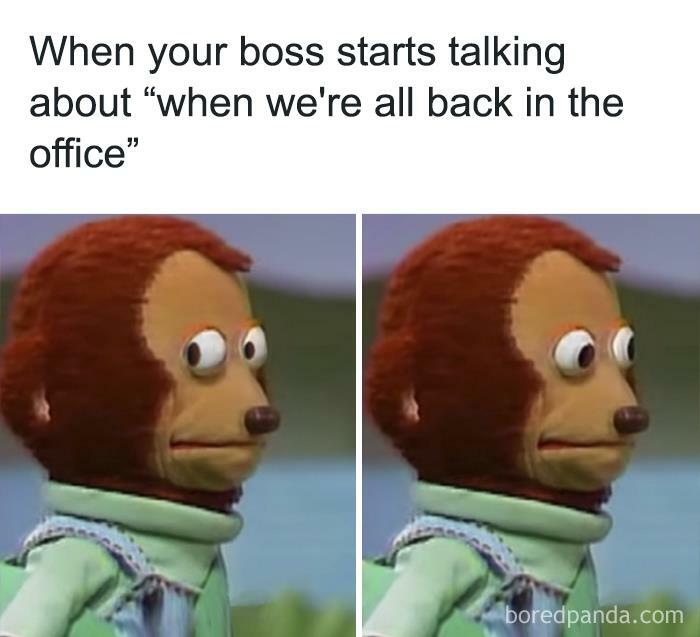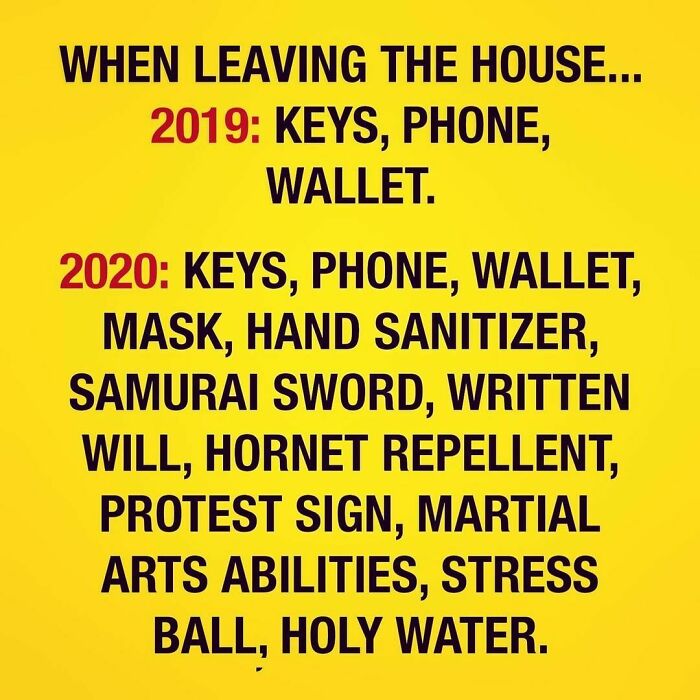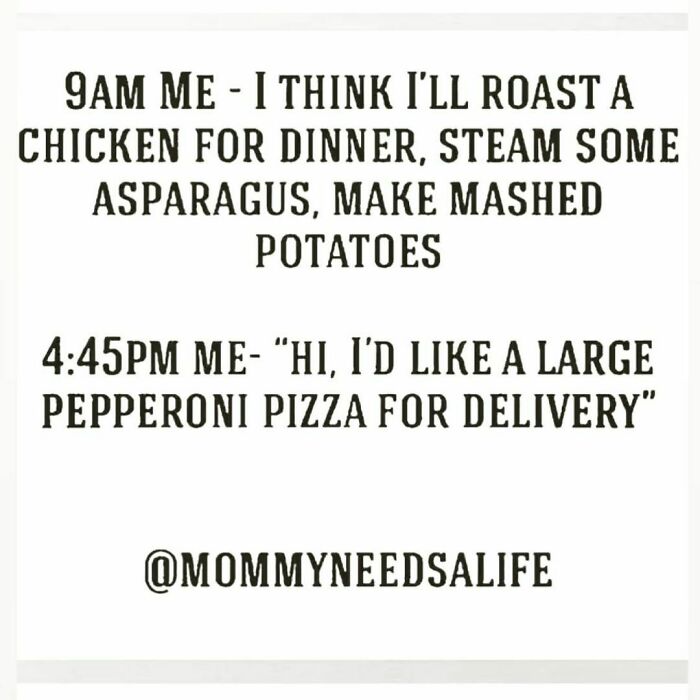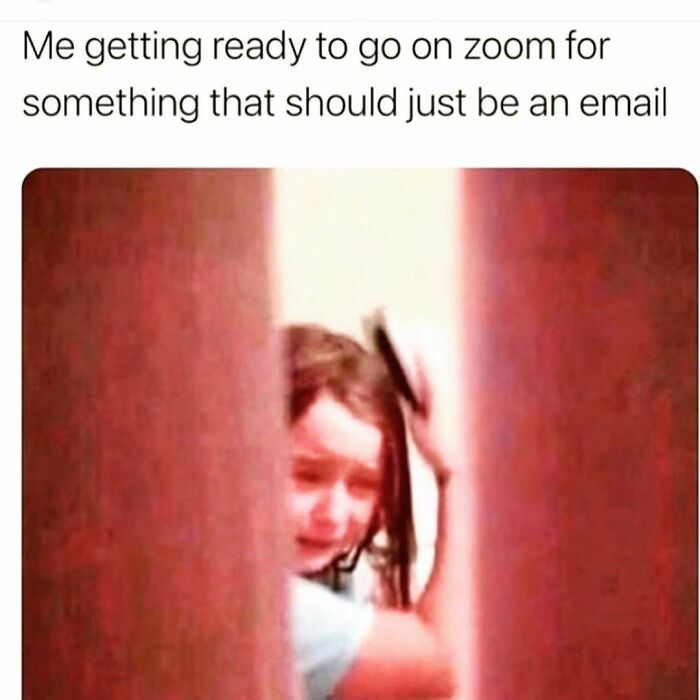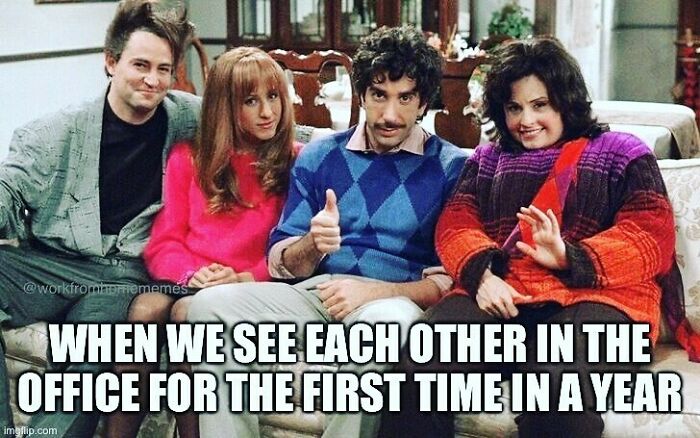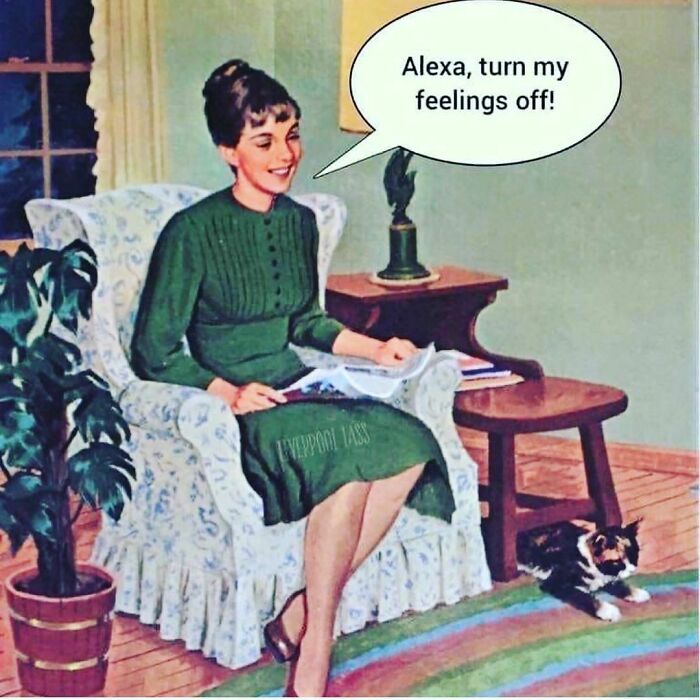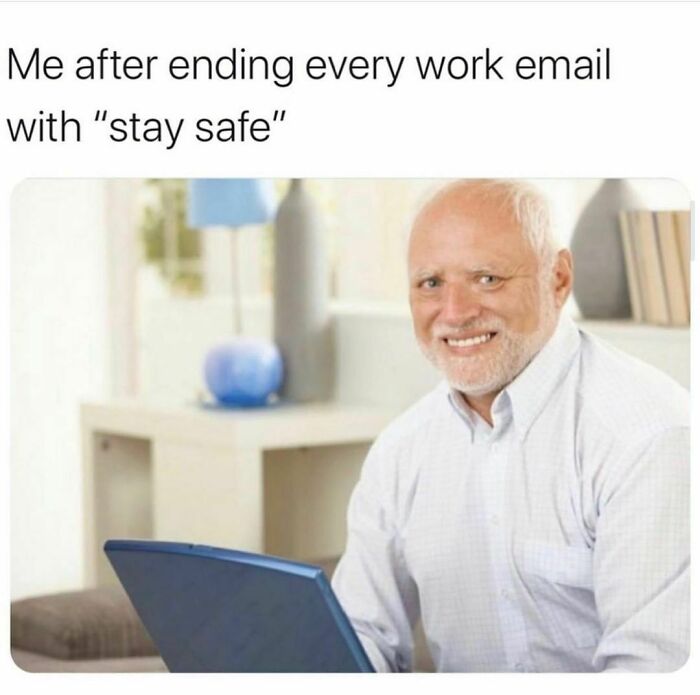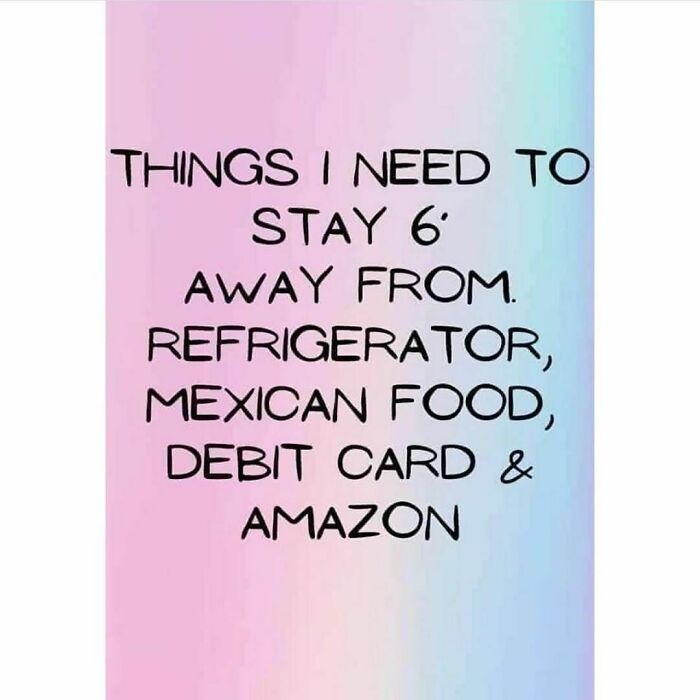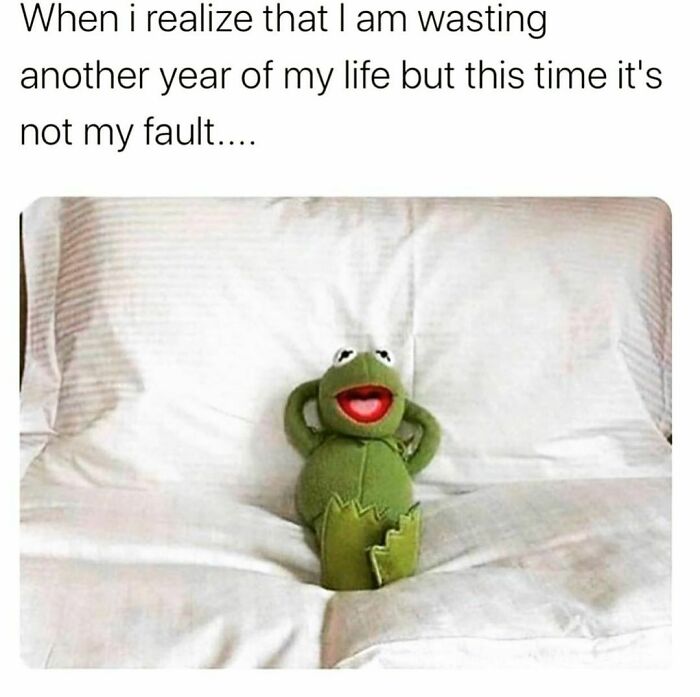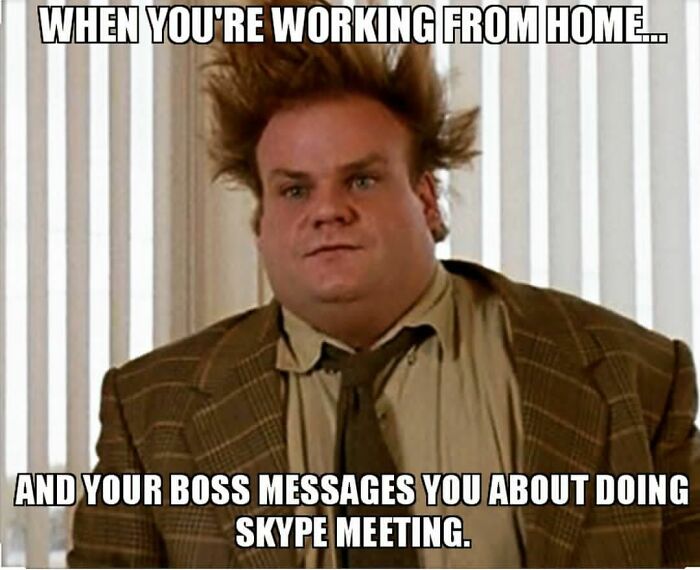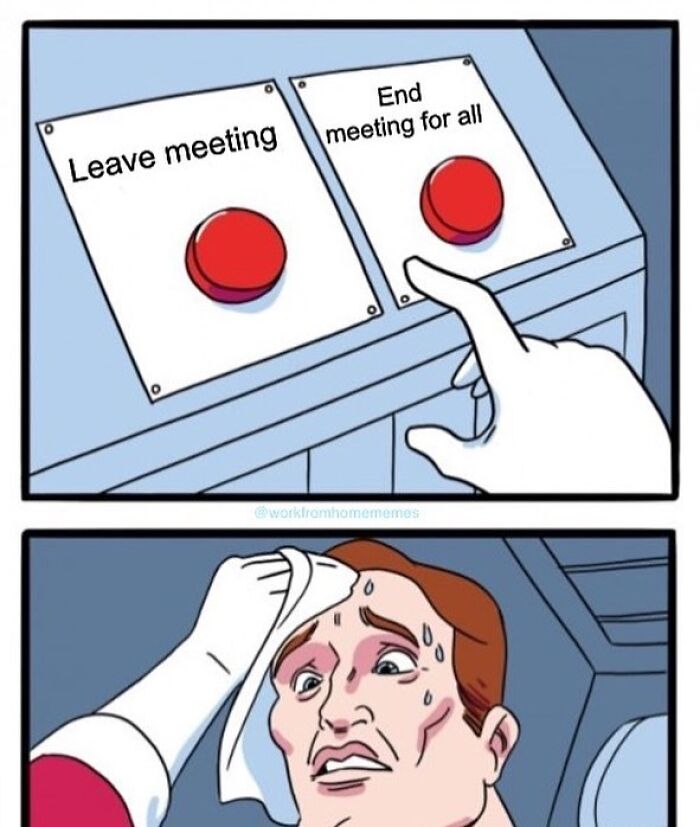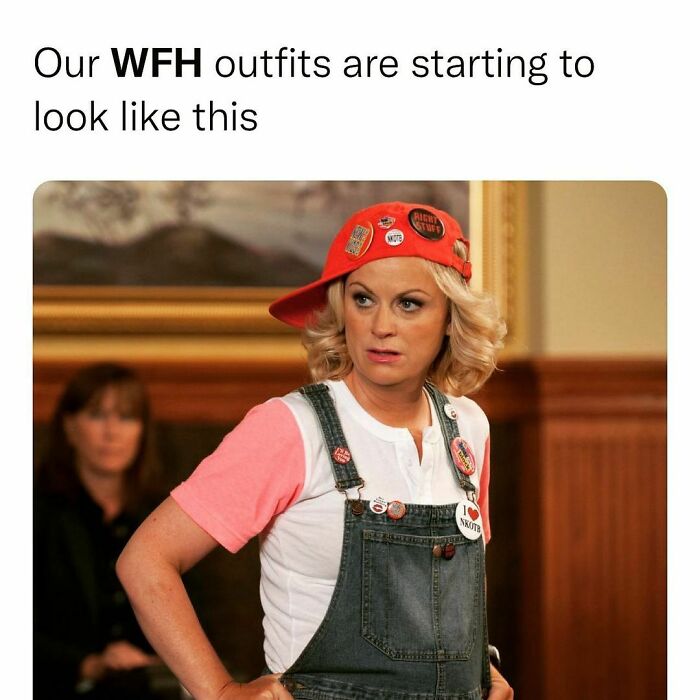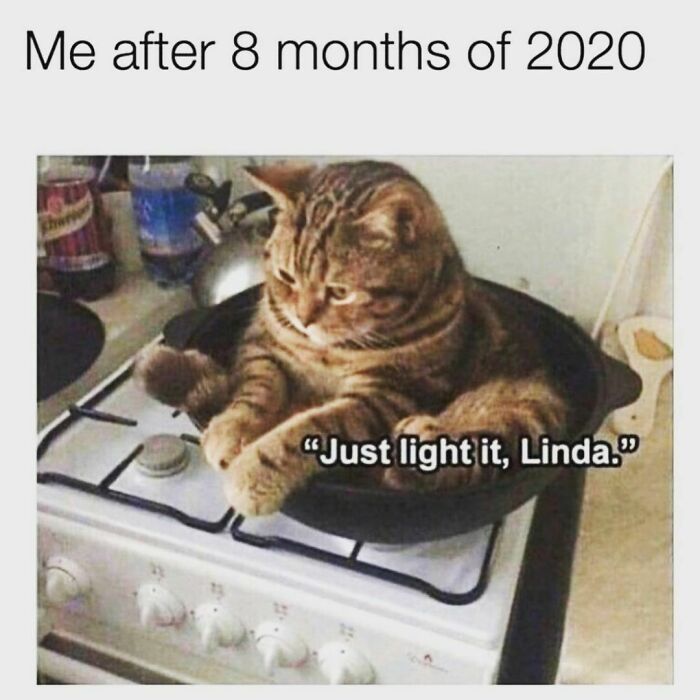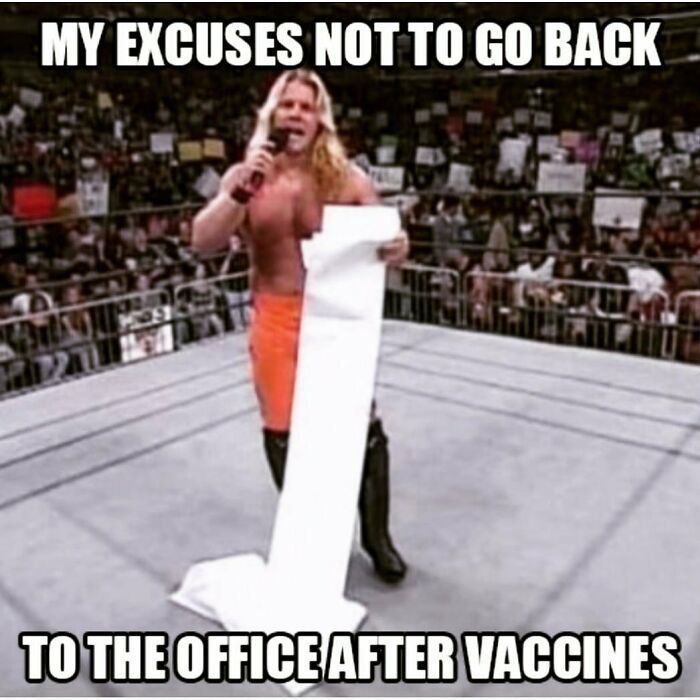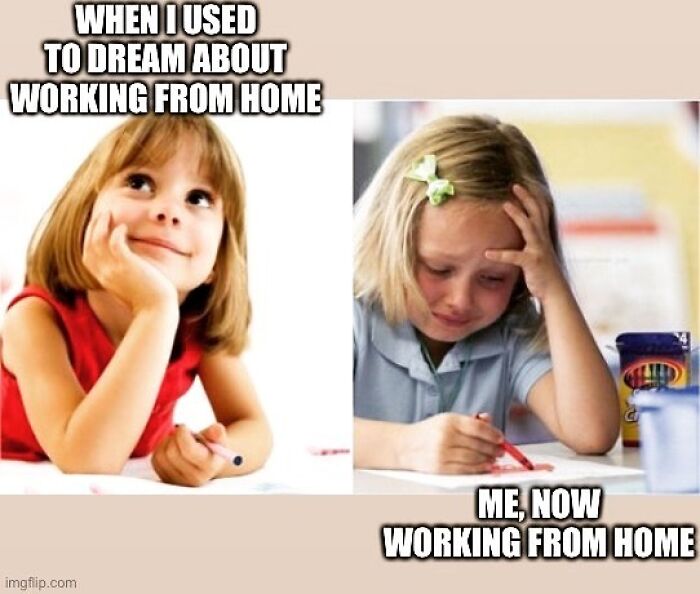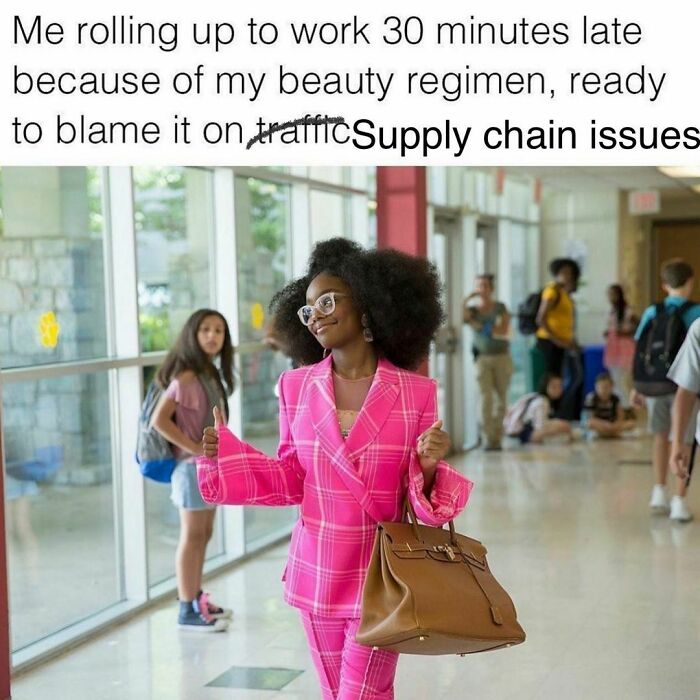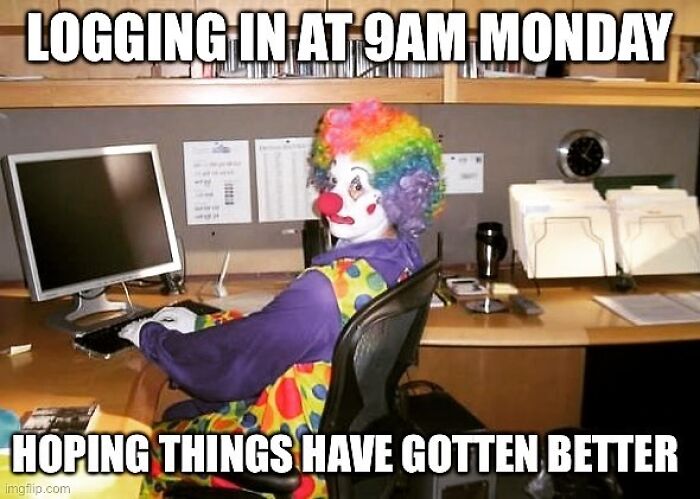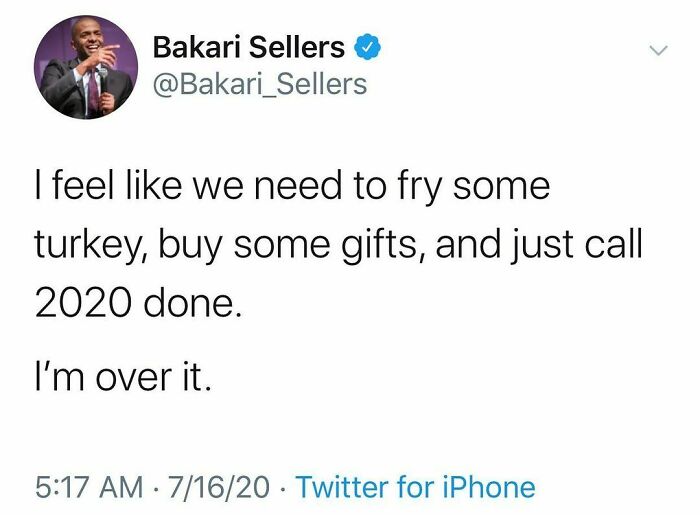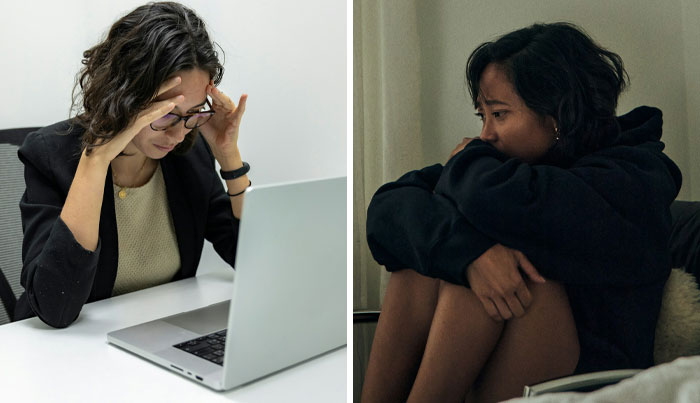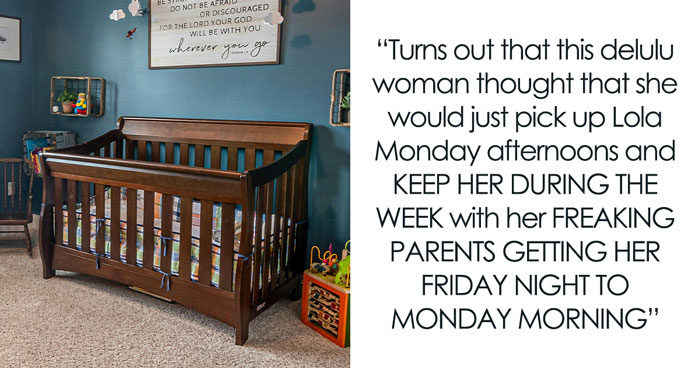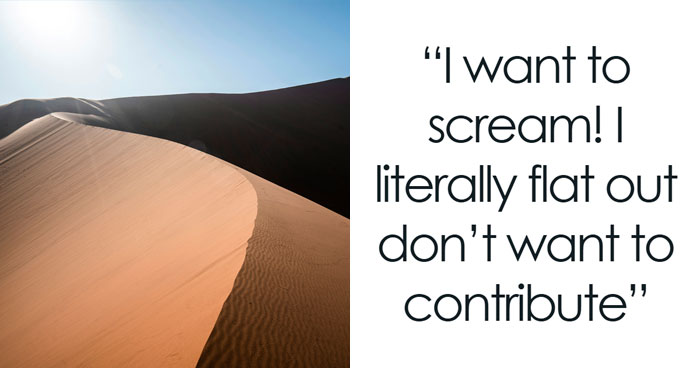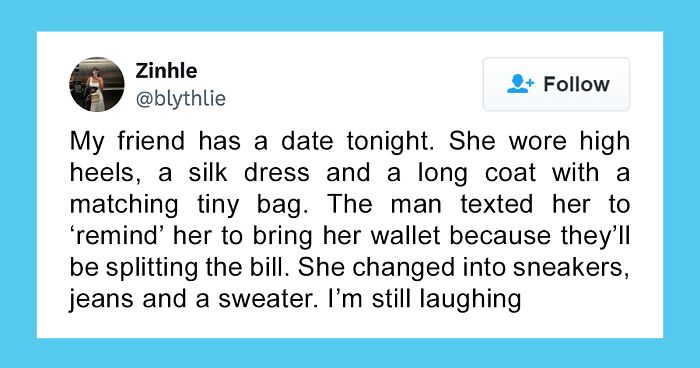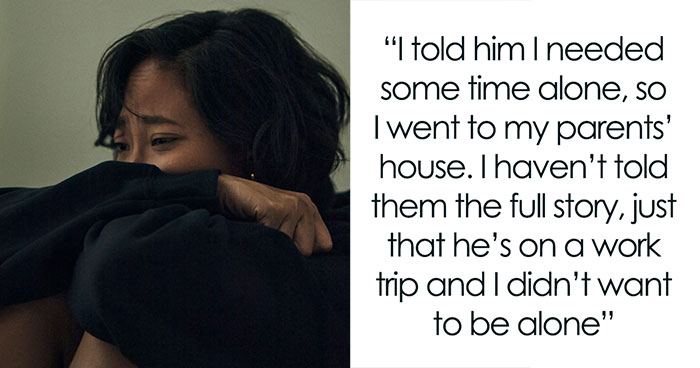A norm just a few years ago thanks to the pandemic, working from home is now being slowly eliminated or minimized in some workplaces, to the joy or sadness of those who got used to wearing pajamas “to work”.
Like many things in life, this, too, is a double-edged sword; anyone who’s ever had to do their job remotely knows just how good it feels to get a little bit more sleep in the morning but how frustrating it can be asking can you hear me now? on Zoom for the sixth time.
These situations are just a couple of examples of how WFH affected our professional life, but there sure are more and you can find them on the list below, where we have compiled some of the best ‘Work From Home Memes’. Shared by an Instagram account titled exactly that, they perfectly sum up the good and the bad of working in your paja… working remotely, so wait no longer and scroll down to see if you’ve encountered any of the same joys/hardships yourself.
Below you will also find Bored Panda’s interview with a start-up growth coach and an award-winning HR executive, Daneal Charney, who was kind enough to answer a few of our questions on the topic of working from home.
This post may include affiliate links.
“In a recent discussion with 11 high growth companies, only one chose a three-day in-person option; all the rest were either fully remote or hybrid ‘Office optional’,” start-up growth coach and award-winning HR executive Daneal Charney told Bored Panda in a recent interview.
“While companies are getting braver about strongly encouraging in-office town hall [meetings] or quarterly offsites, they are not mandating it, and probably don’t plan to,” she continued, adding that almost all companies take into consideration how far employees are from the office. “Many companies are continuing to listen to employee sentiment and take their cues from this data.”
According to Charney, companies have to decide if they are location-based or if they can adopt a more flexible model. “If they are location-based then they are limited to talent that is close to their office so they need to be able to live with the impact of a limited talent pool,” she pointed out.
“Companies need to pick a model that can work for them, but be realistic about the upside and downside of their choice and mitigate any challenges. For example, remote companies often put aside a bigger budget for local city get-togethers, optional co-working spaces, and annual offsites.”
The expert added that for workplaces that provide co-location experiences, the best practice is for people to have overlapping time with others. It’s also important for companies to make their employees’ experiences valuable, make exceptions if needed, and lead from the top. “Many remote companies are offering shared space when there’s more than a few employees in a city and even paying for lunch get-togethers,” Charney noted.
Once arguably a rarity, working from home became not only what’s attainable but what’s expected from employees during the pandemic. Before 2020, roughly 17% of employed adults in the US were working from home for five or more days per week, during the covid years—as much as 44% of them did.
The new reality quickly became the only option in some workplaces, at least for a certain period of time, which wasn’t met with equal levels of enthusiasm from everyone. People seemed split into camps about how they felt about working from their dwellings or torn by a somewhat of a love-hate relationship with it.
It astounds me how many people are unable to read beyond the first sentence of an email. I'm still going to make sure my a$$ is covered though. Yes, I sent it to you, here, let me resend the original!
According to Forbes, the main advantages people saw in remote work were flexibility and increased productivity, while those opposing such an arrangement said they experienced burnout and lacked connection with fellow employees.
Be that as it may, a staggering majority of employed individuals—98%, to be exact—reportedly wished to continue to work remotely at least to some extent. That might be one of the reasons why roughly 16% of companies no longer have a physical office and operate fully remote.
“For some employees who have moved far from the office, remote work is non-negotiable,” Daneal Charney told Bored Panda. “For most, it’s highly preferred at least most of the time, which means three days a week minimum. Working from home is less available for early stage companies, though, who are building hardware products or working in labs to develop new drugs or in the early stage of formation.”
In my case it would be: 7:59 - in bed, in my pyjamas, 8:01 - at my work laptop, still in my pyjamas
For those in favor of working remotely, such an option has become so important that nearly 60% of them said they would quit their jobs if it was no longer available. Chances are that the people who favor such an arrangement the most represent the industries of computer and IT, marketing, or accounting and finance, as these, according to Forbes, are believed to be the top industries for remote workers in 2024.
If there's an easier way to do it, why was it so complicated in the first place?
Roughly 65% of employed individuals say they would work remotely all of the time if they could. One of the main reasons for that seems to be the need for a better work-life balance, which, according to Forbes, they find more easily attainable while working from home. (Though, while for roughly seven-in-ten people it helps maintain a healthy work-life balance, for around 12% of them it reportedly has an adverse effect.)
Another reason people enjoy working from home is because they find it more productive, which might be the case, especially if they have an equivalent of Kelly Kapoor—the chatty employee from ‘The Office’—at their workplace.
According to Owl Labs’s Annual State of Remote Work report from 2021, as many as nine-in-ten people who have worked from home during the pandemic said their levels of productivity either matched or exceeded the levels when working from the office.
I don't think this is complete without a definitive statement ending with a question mark? "Something that is definitive provides a firm conclusion that cannot be questioned?"
My alcoholic neighbor "sorting" his recyclables on one side, and the illegal daycare center on the other.
The Owl Labs report found that more than half of people found virtual meetings less stressful than real ones, which is not that hard to believe, especially considering all the entertaining scenarios such meetings often entail. From babies cooing and husbands dancing in the background to participants in the meeting failing to mute their microphones—a situation that can entail some rather awkward moments—among other things, people in virtual meetings have seen it all.
I'd leave instantly. My family is mostly awful (drug addicted sibling, the person with the uterus he came out supporting him, just to give one example) I go to work for money, not for more family trouble. Making friends there is fine and a bonus. But calling some random people 'family' is a big red flag for me.
But remote work is not only about the stress Zoom meetings do or don’t entail. Most remote workers would likely agree that it significantly changed the way people got ready for and got to work, too, especially in regards to how long it took them to do it.
For instance, waking up in the morning and choosing an appropriate outfit was replaced by opting for sweatpants and a hoodie instead (maybe a nice shirt, if you—well, the top part of your body, at least—needs to look presentable for a meeting that day), while spending hours in traffic became a thing of the past as getting to your home office meant spending less than a second on the commute. (As a matter of fact, according to a global study, people working from home saved roughly two hours of commute every week in 2021 and 2022.)
Plus my personal hygiene has somewhat gone south since last time I was at the office.
If work-related memes are something you enjoy, don’t worry about this list coming to an end, as we have plenty more in store for you on Bored Panda’s category dedicated entirely to memes. There’s also one for work-related matters, too.
THAT is me. I start with a "Good [morning/afternoon]" and end with a cheerful "Thank you!"
Ya know how they have those memes about how meme subjects grew up? I so wonder about this one.
Not my style of humor. Such people will ruin it for the rest of us because employers will no longer trust WFH employees.
Note to self: Must buy a ticket in this week's AUS Powerball ($200 million first prize, lump sum, tax free...)
Did I accidently time travel again? I have GOT to keep it under 88MPH...
Many of the entries made me triple-check to make sure I was reading the latest BP posts and not that of the year 2020.
Did I accidently time travel again? I have GOT to keep it under 88MPH...
Many of the entries made me triple-check to make sure I was reading the latest BP posts and not that of the year 2020.

 Dark Mode
Dark Mode 

 No fees, cancel anytime
No fees, cancel anytime 


